Behind the Book
Pictures from my research on A Battle Worth Fighting.
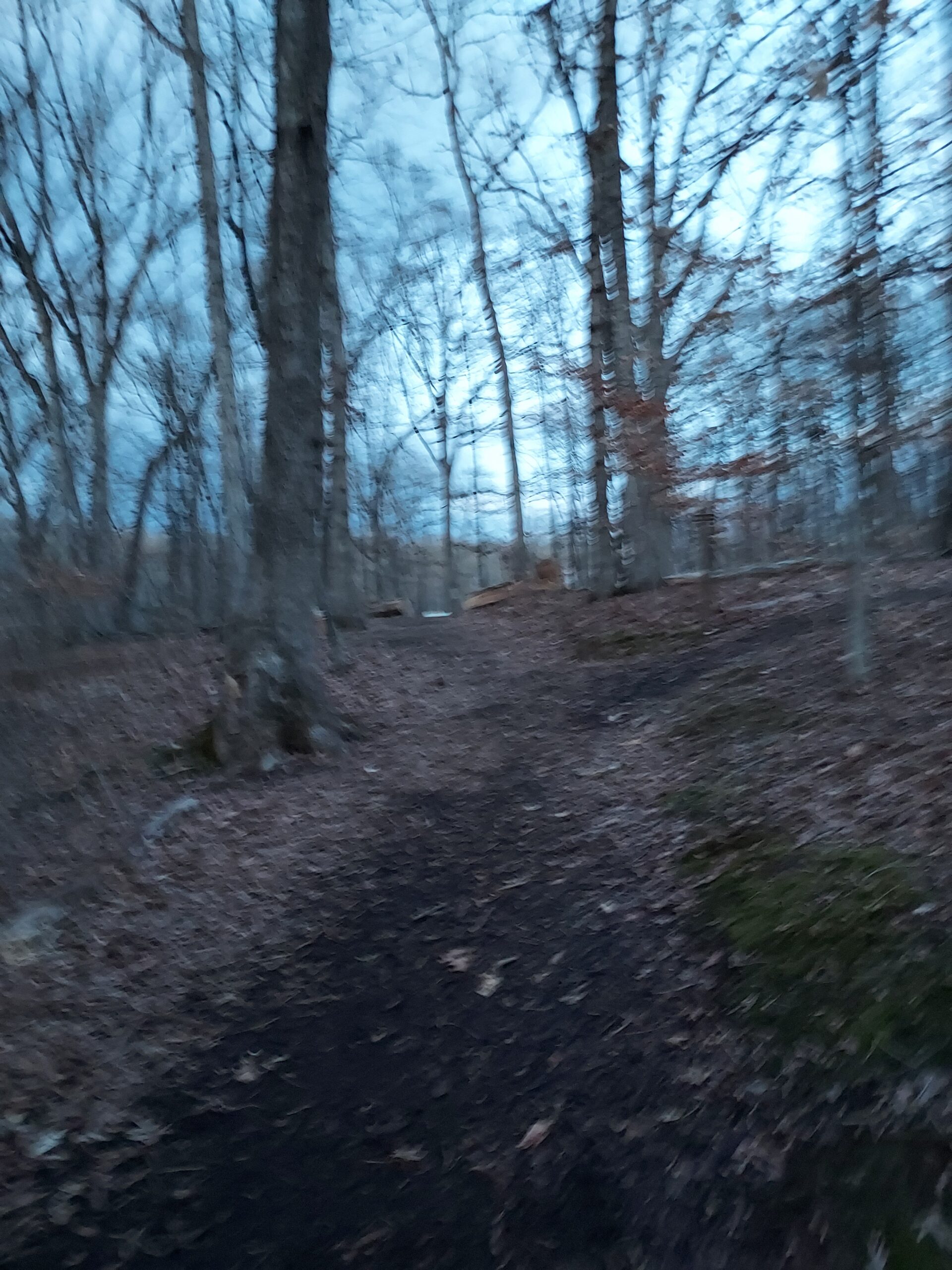
Ball’s Bluff Battlefield Regional Park in Leesburg, VA.
We arrived just before sunset and explored the battlefield at dusk. I kept this picture, even though it’s blurry, because I feel like it captures the soldiers’ experience there. Chaos and confusion.
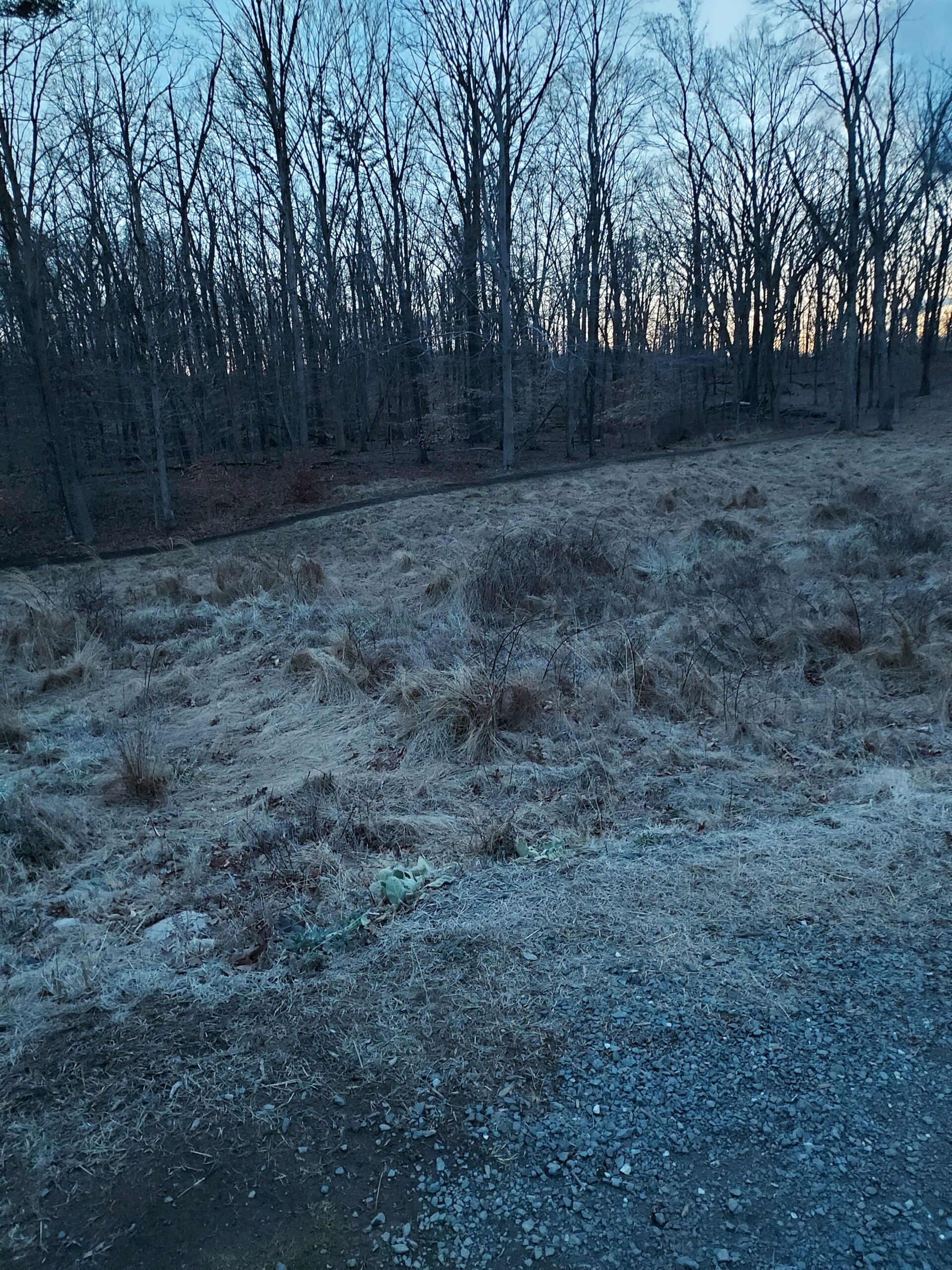
Balls Bluff – Bernie fights here.
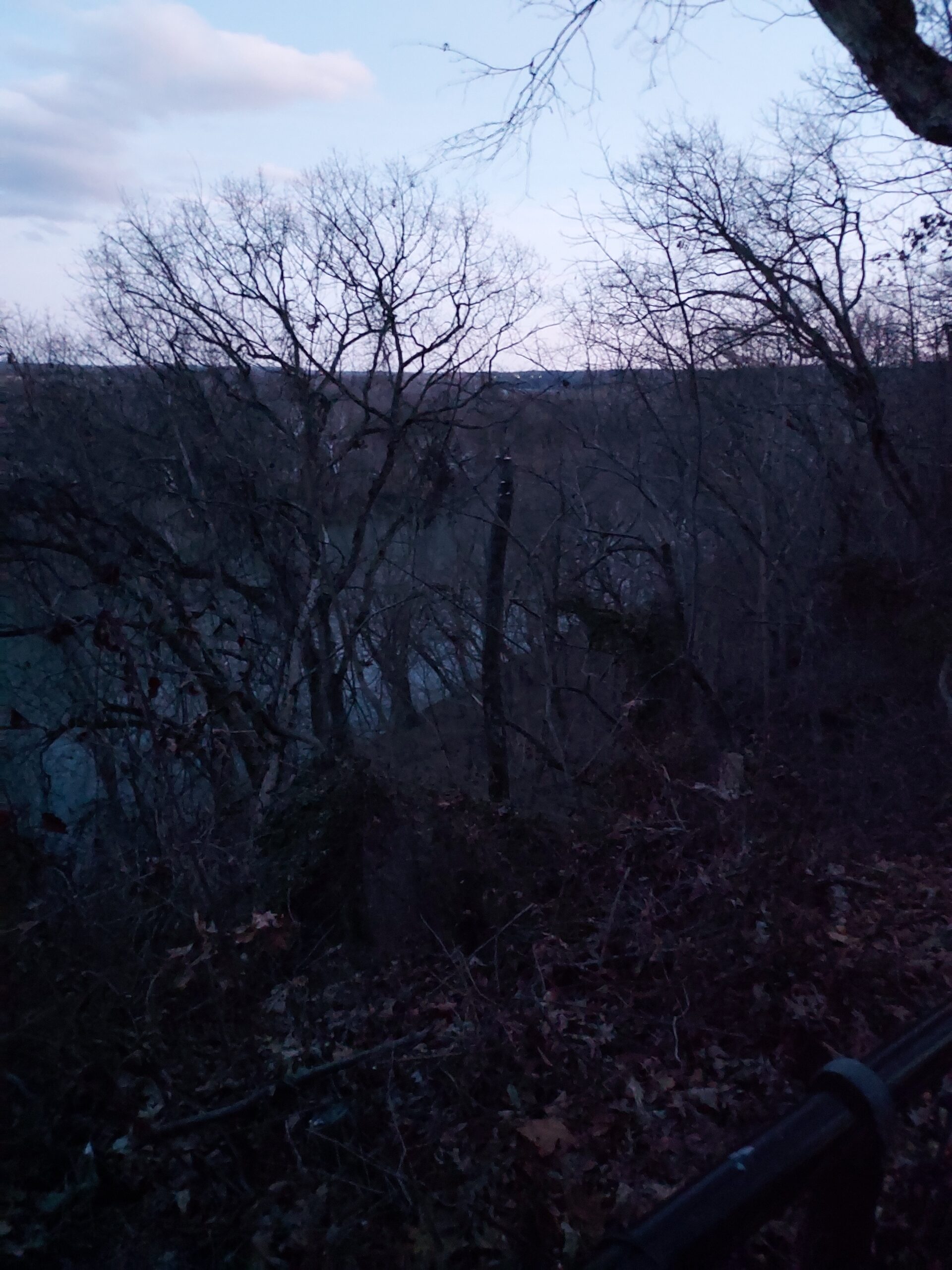
It’s hard to see, but beyond these trees is the bluff that many Union soldiers tumbled down and the river that so many drowned in. It is here that Bernie wonders if anything is worth this.
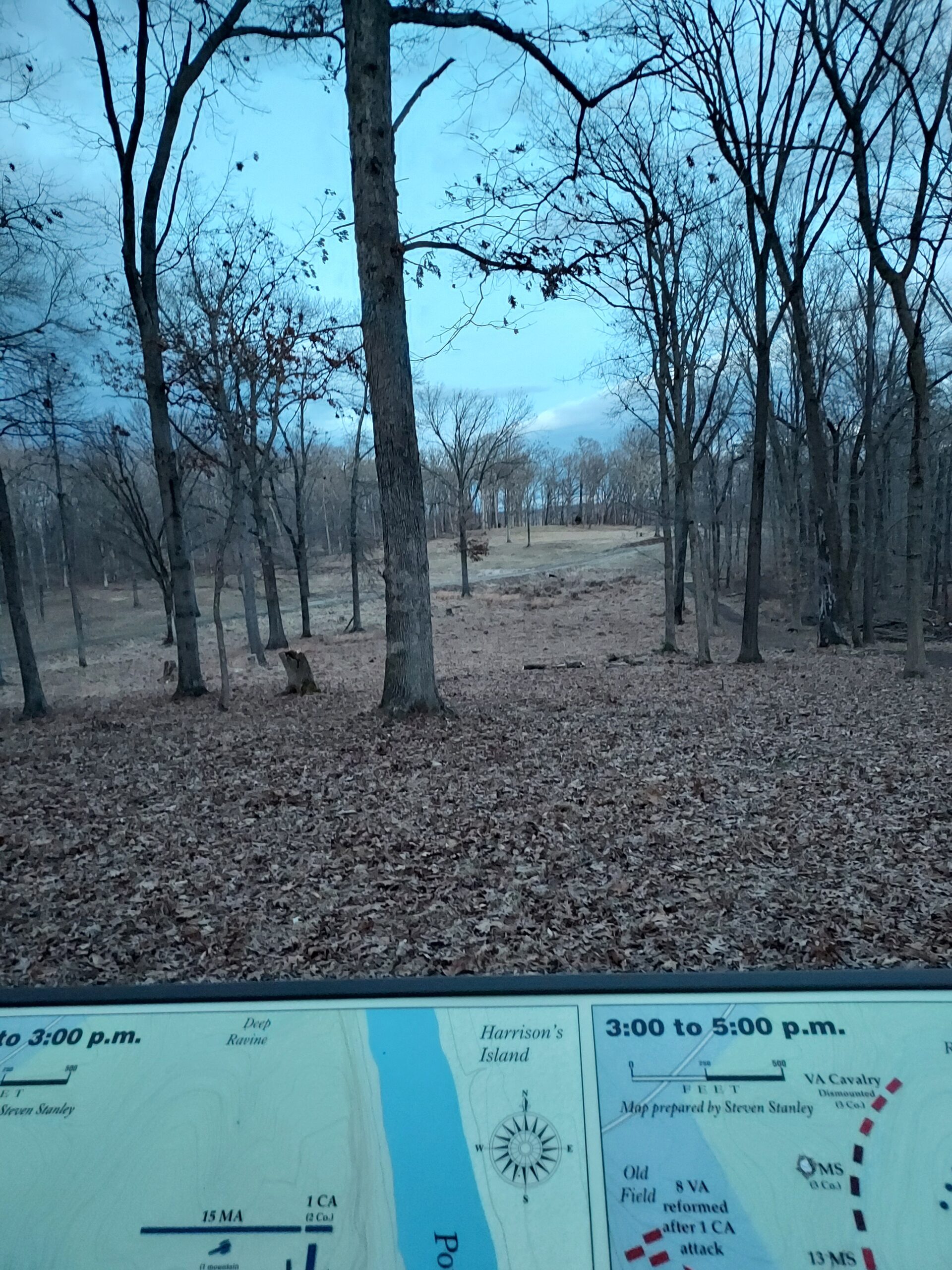
Ball’s Bluff
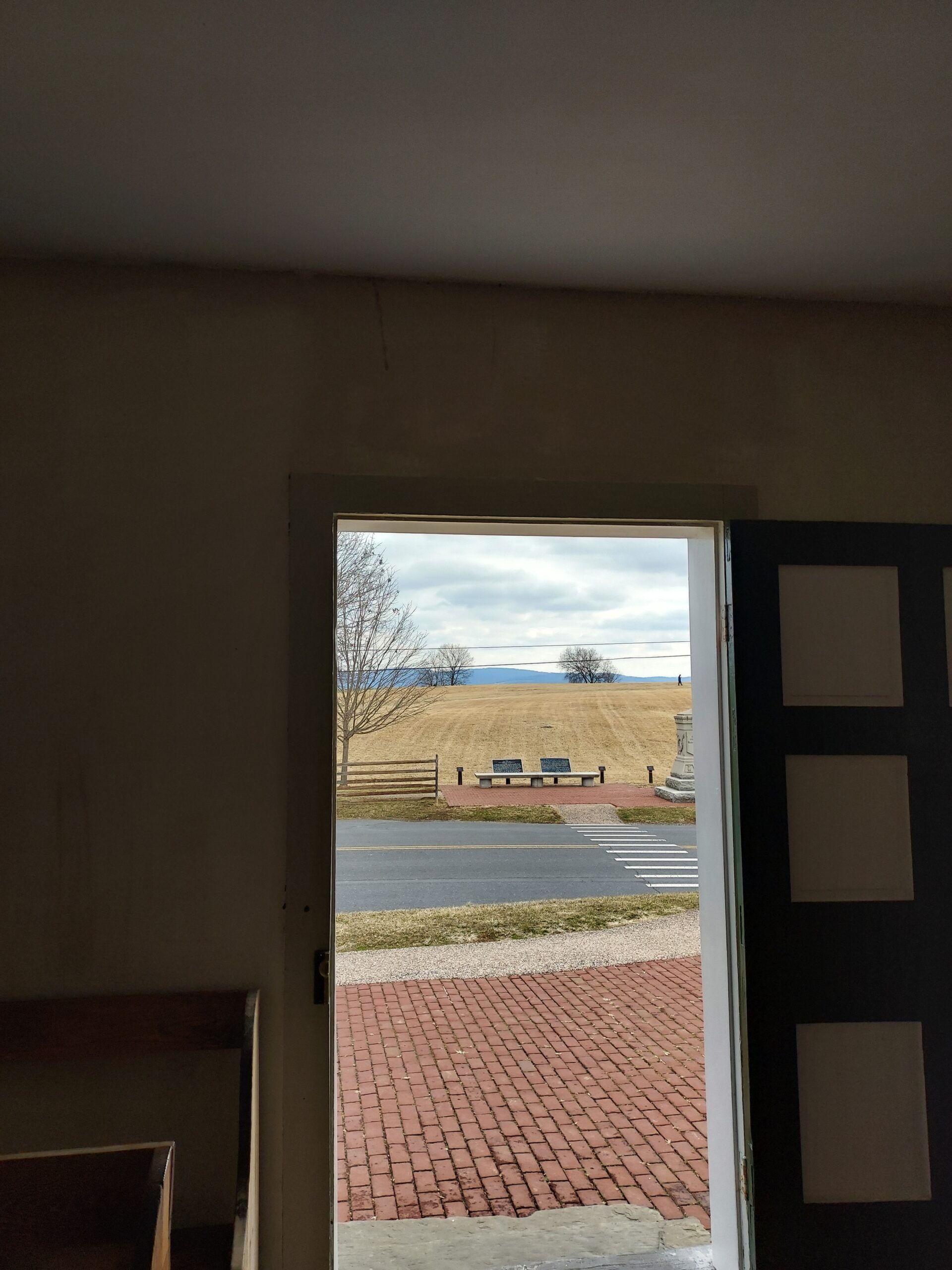
From inside the Dunker Church at Antietam. The Dunkers were pacifists who wished to avoid the war. However, the war came straight to their door with the bloodiest day of the Civil War.
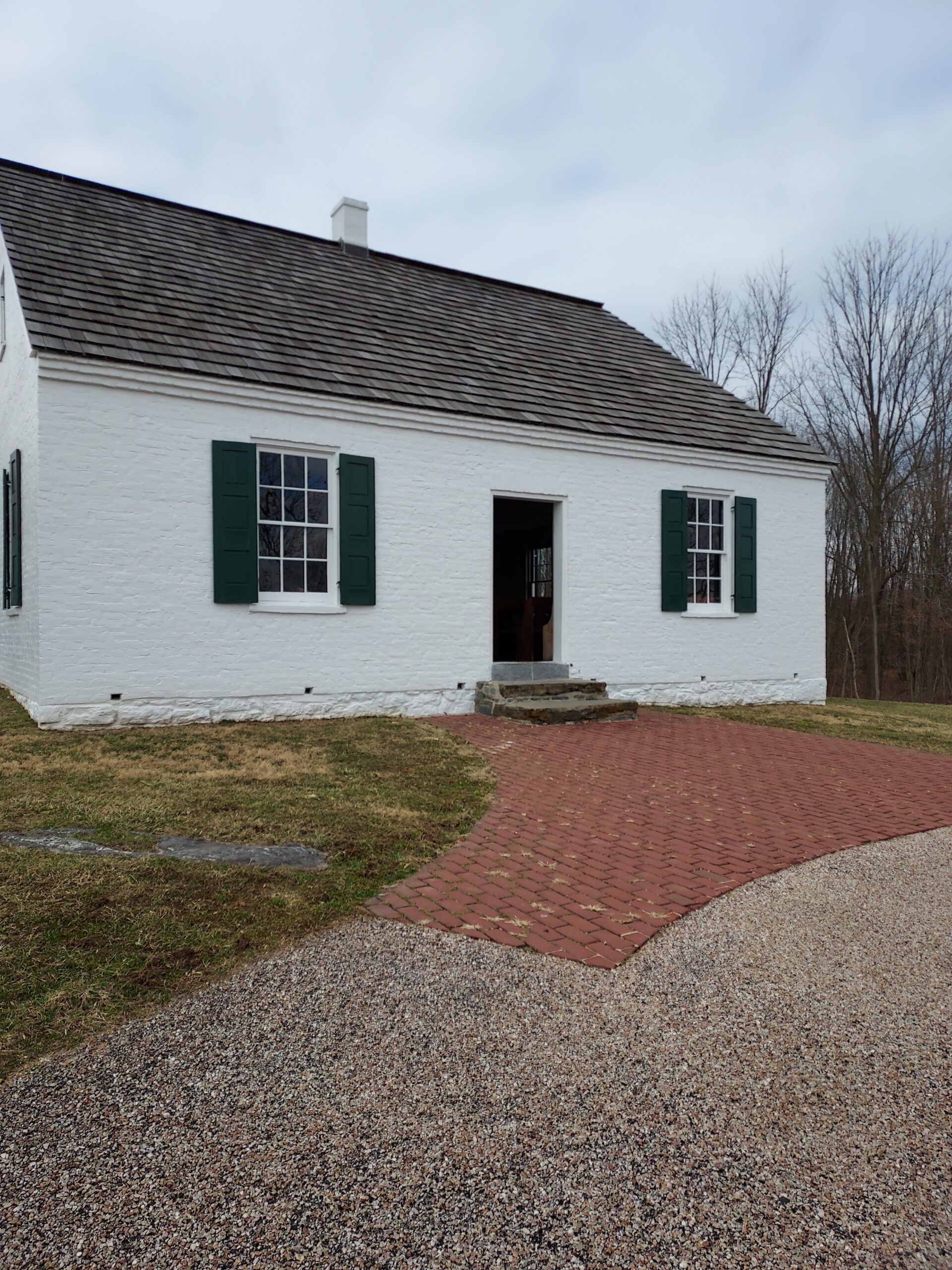
The Dunker Church at Antietam
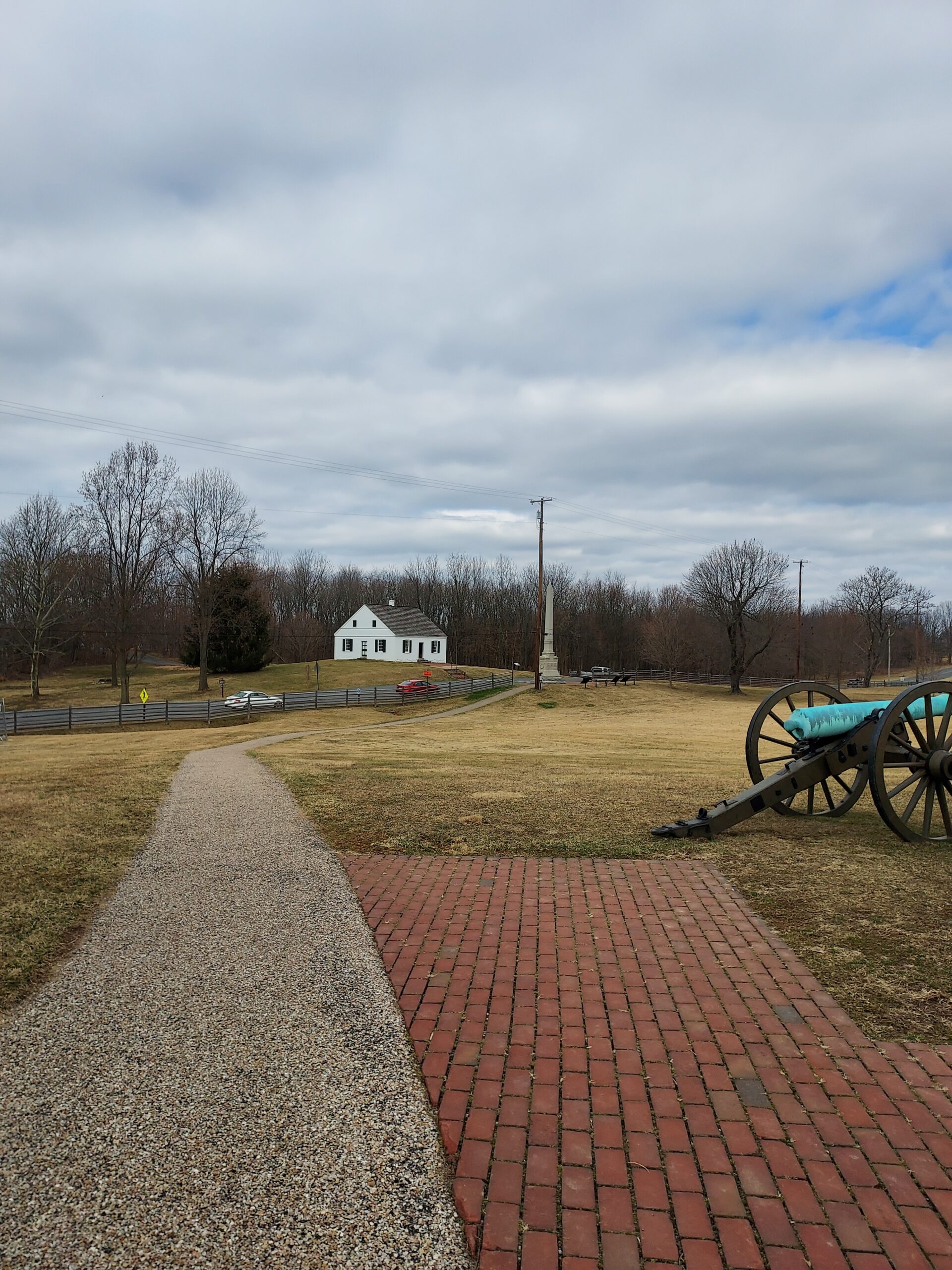
Antietam with Dunker Church in the distance.
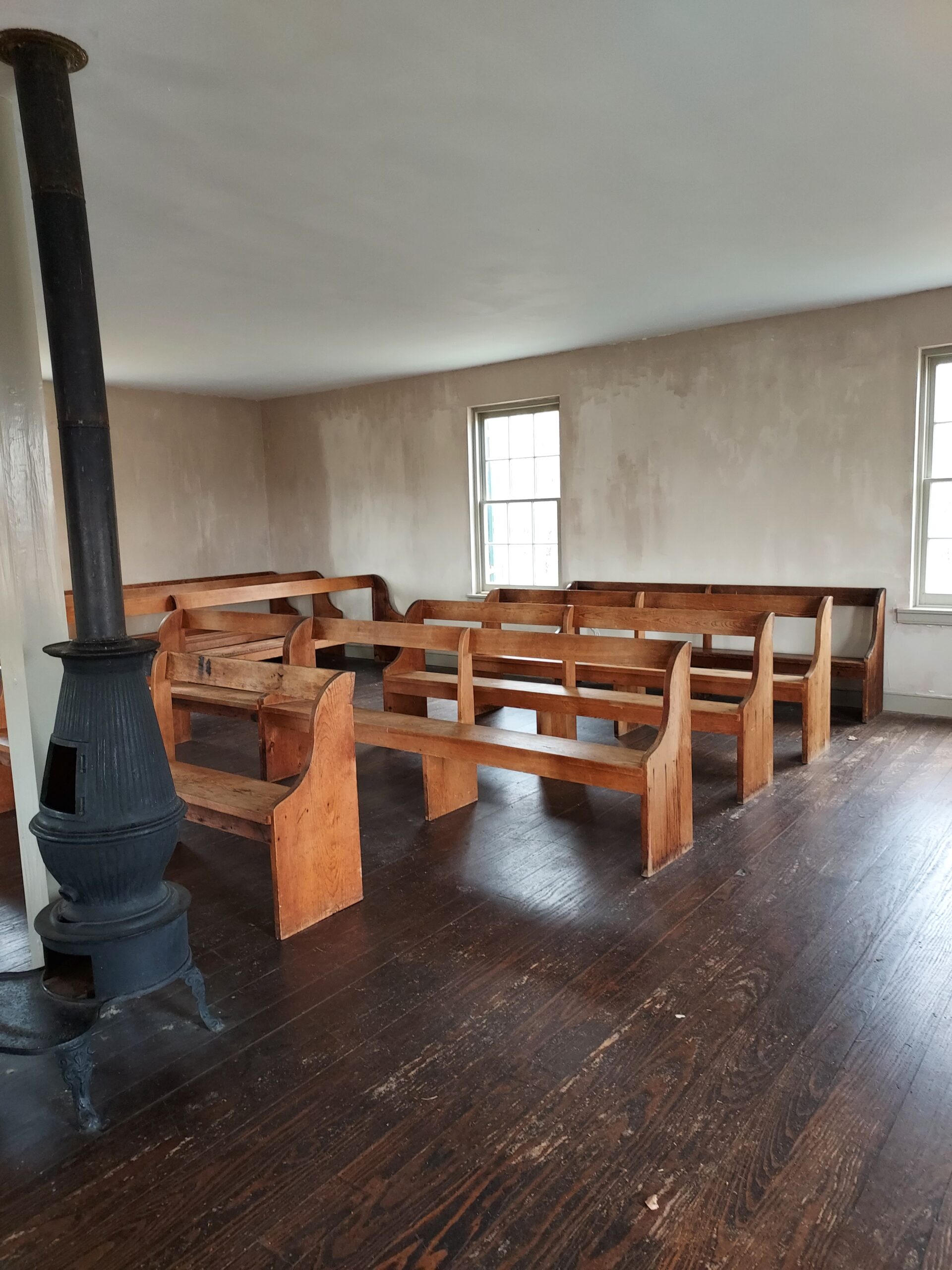
Inside Dunker Church at Antietam
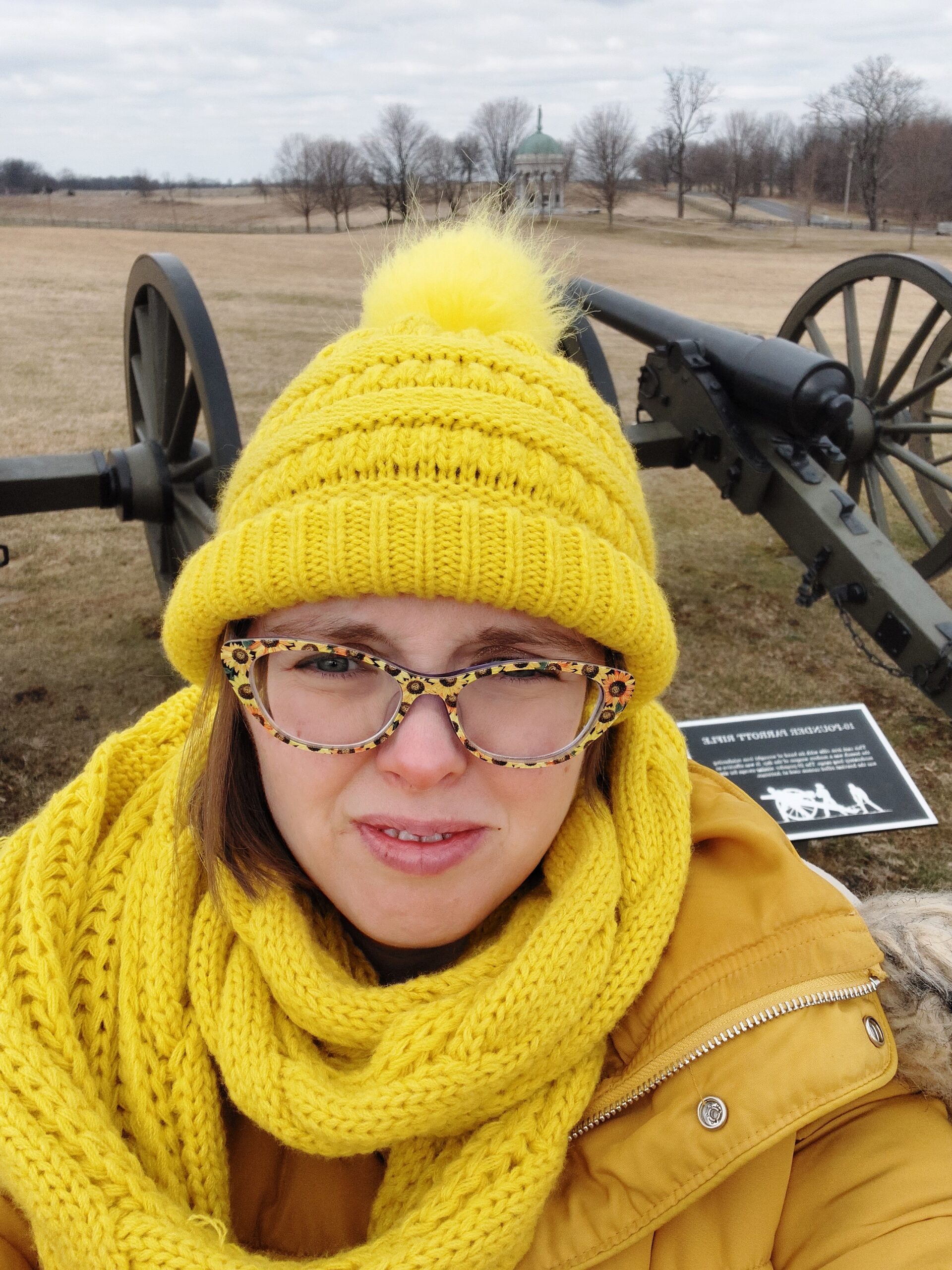
Antietam. It felt inappropriate to smile here. This was the bloodiest single day in American military history.
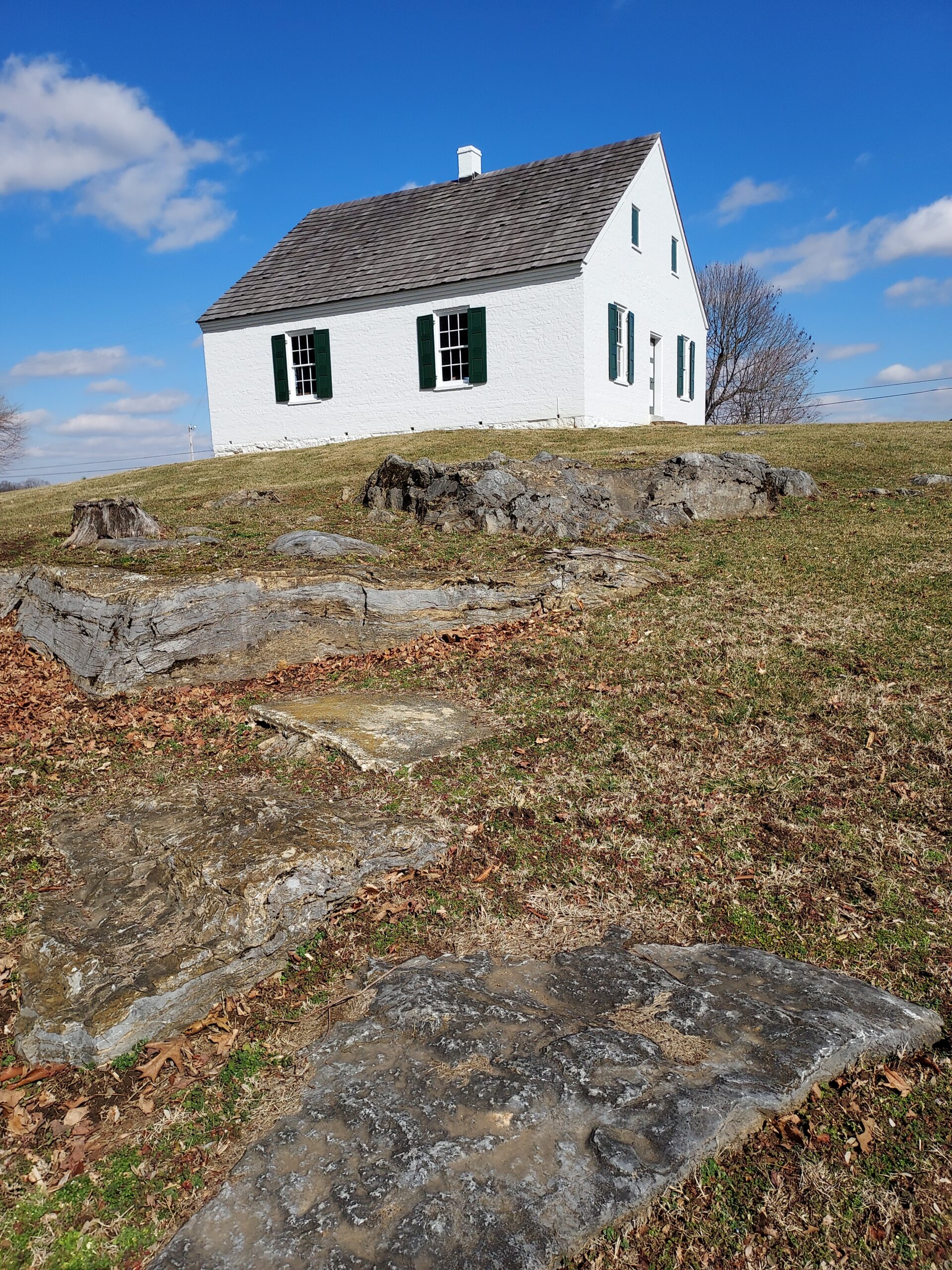
The Dunker Church at Antietam
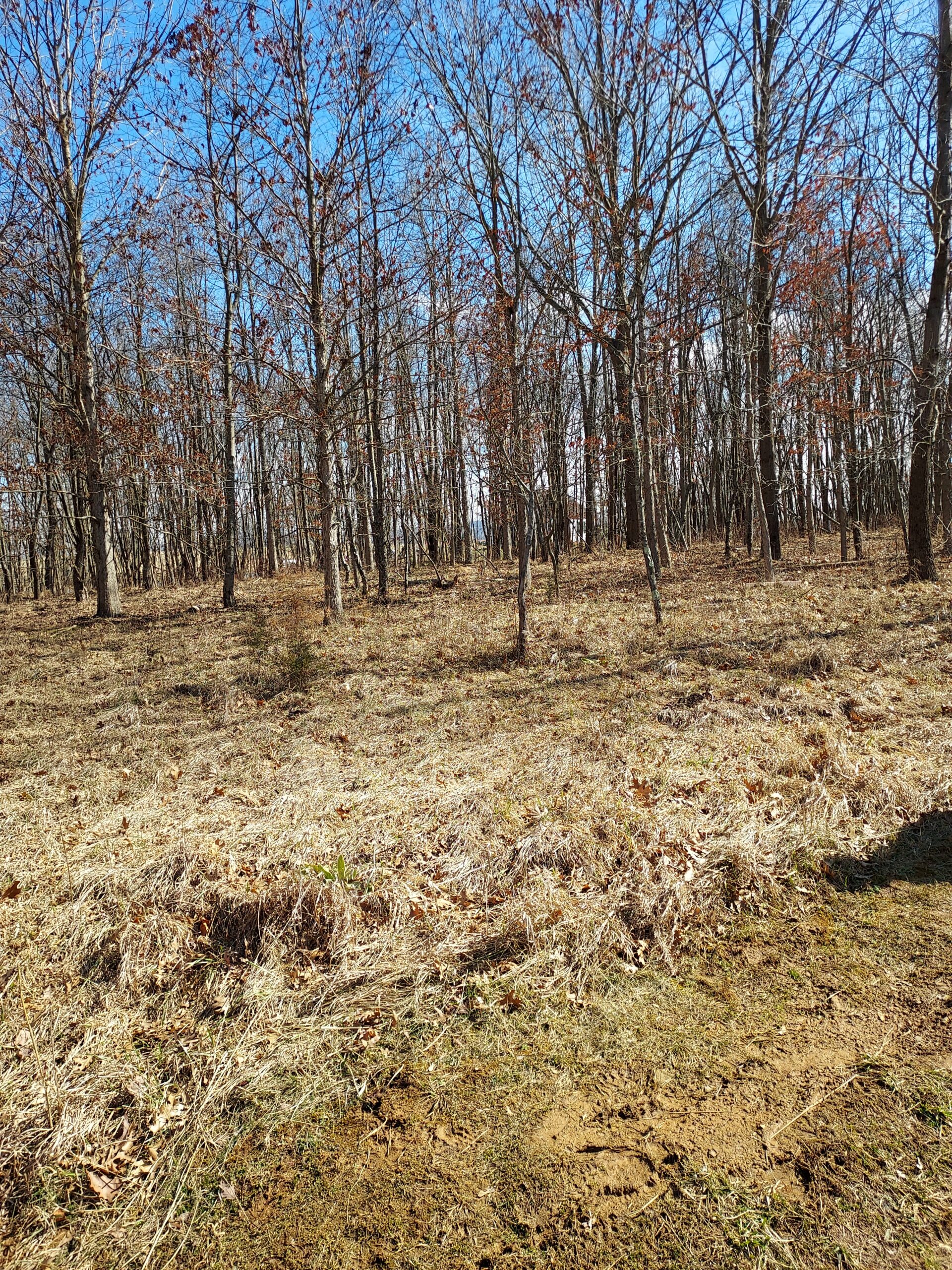
The West Woods at Antietam. This is where Bernie fights in the novel.
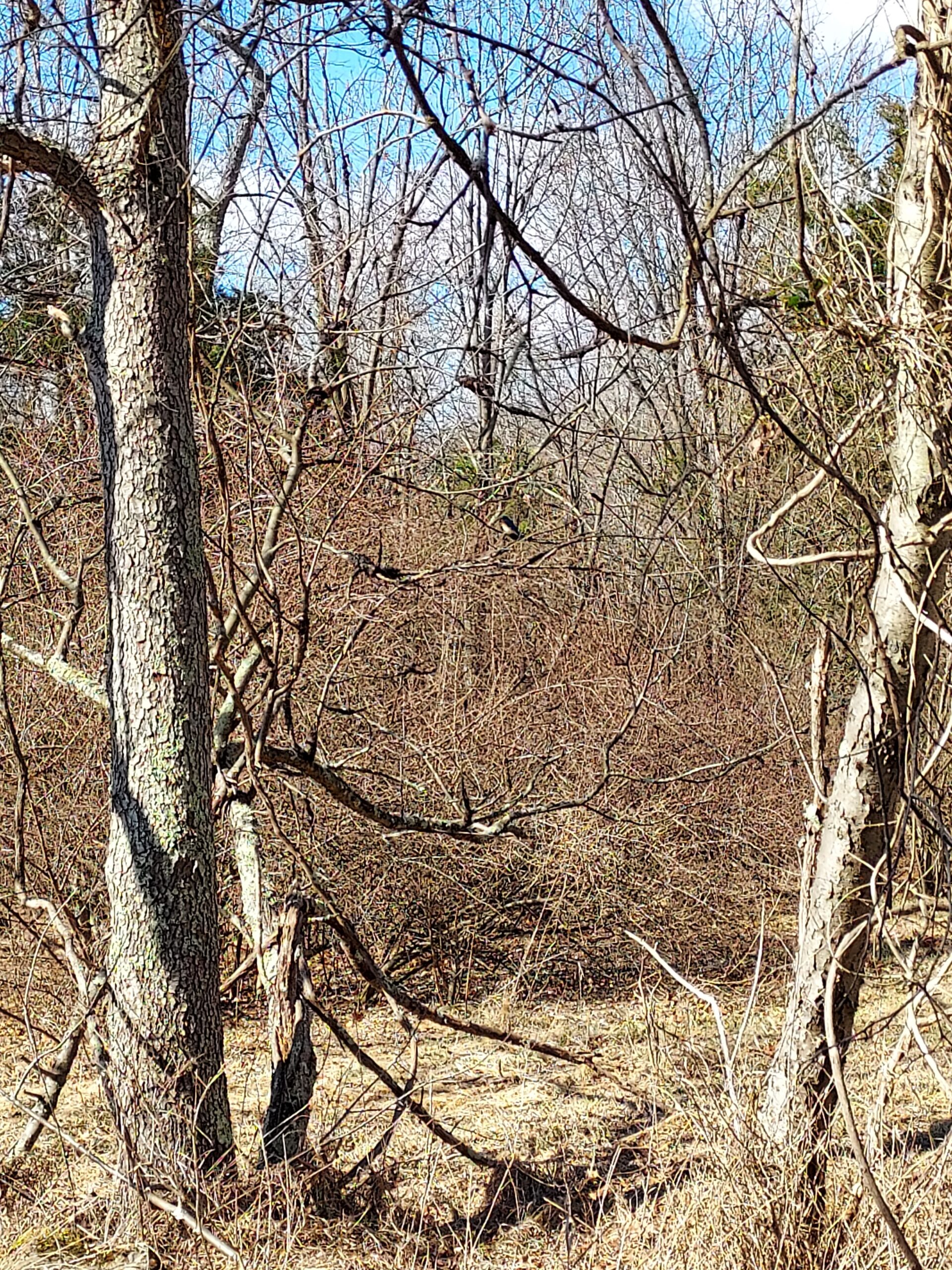
The West Woods at Antietam
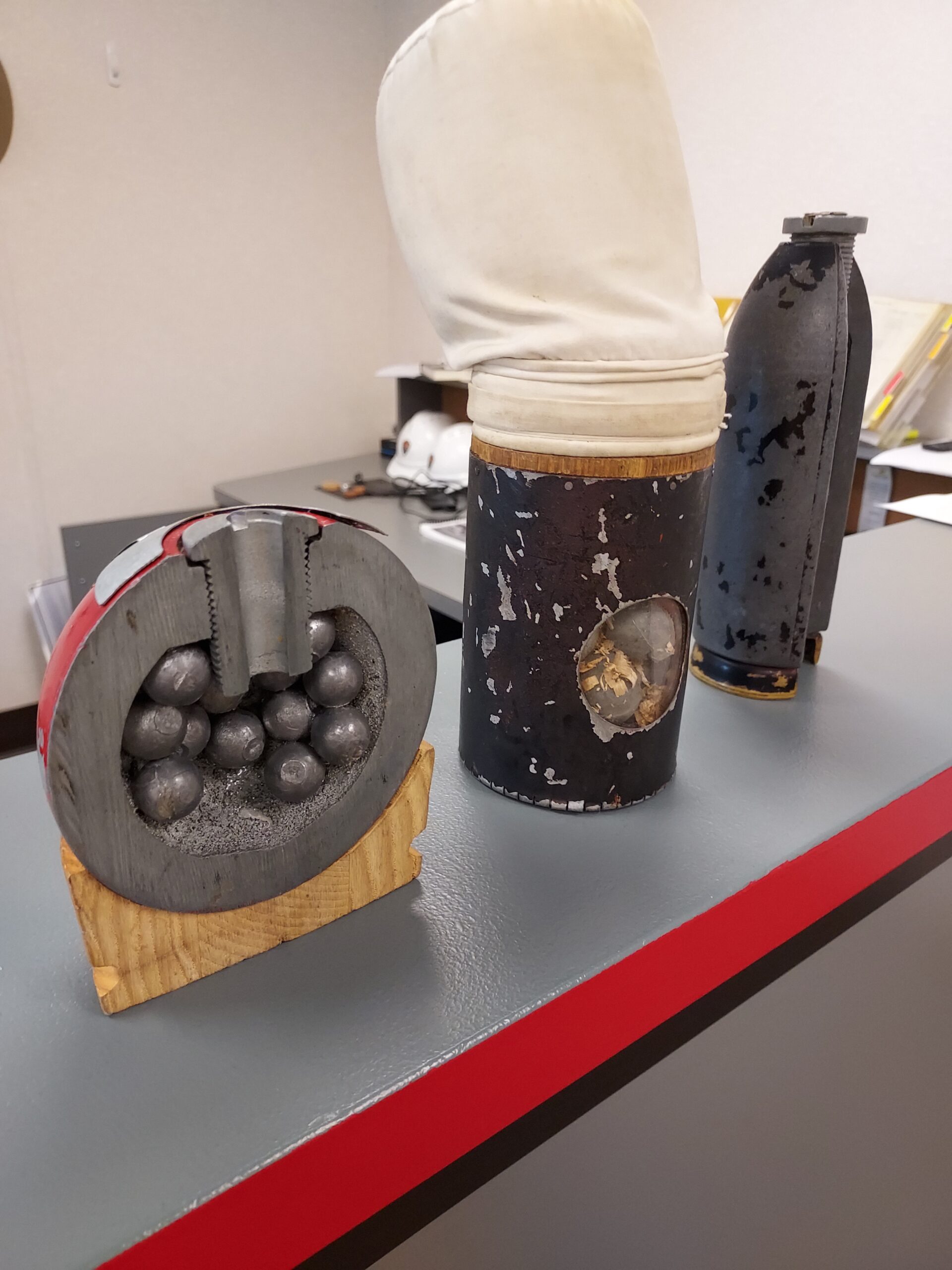
Showing various cannonballs
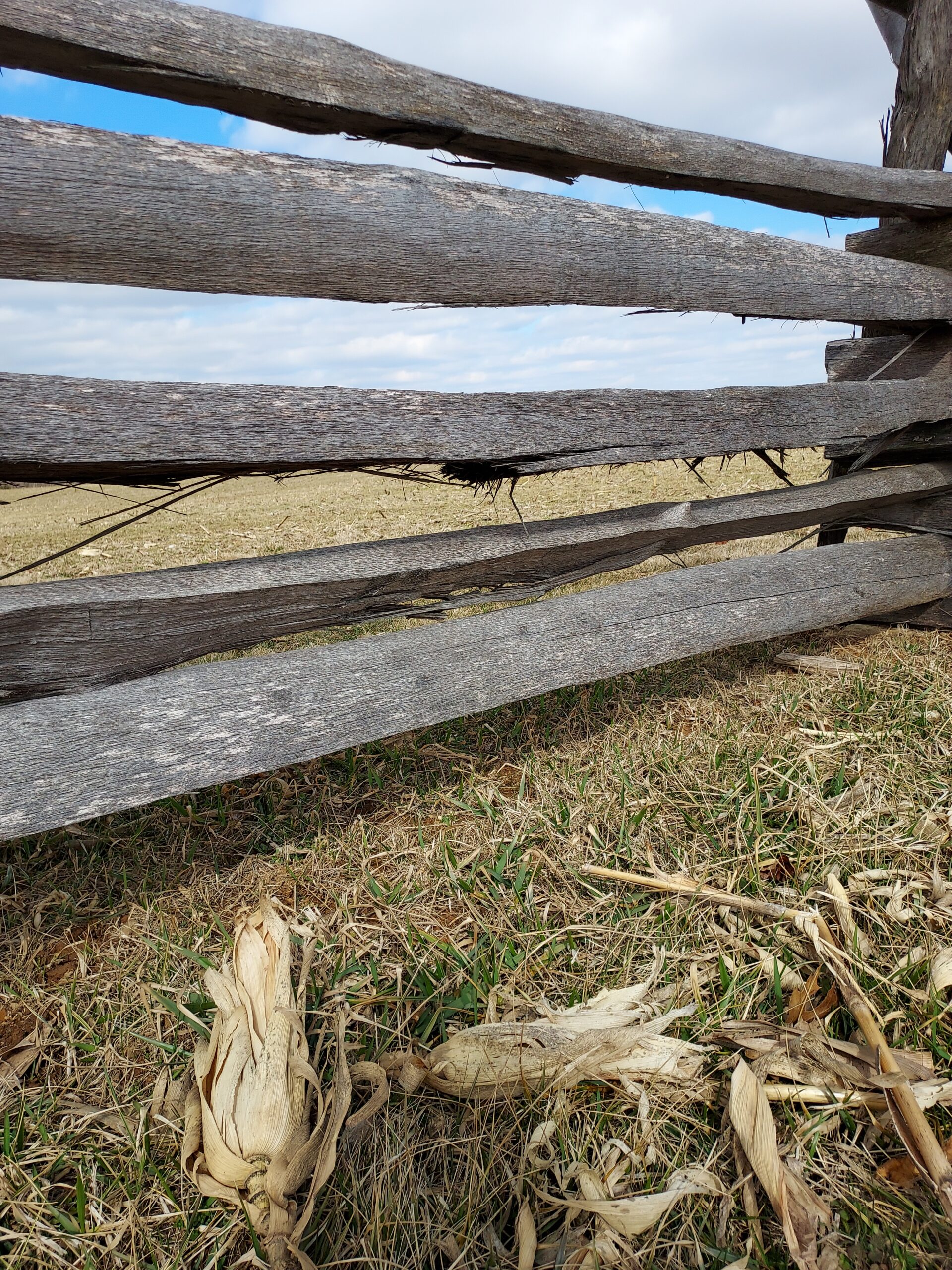
The cornfield at Antietam
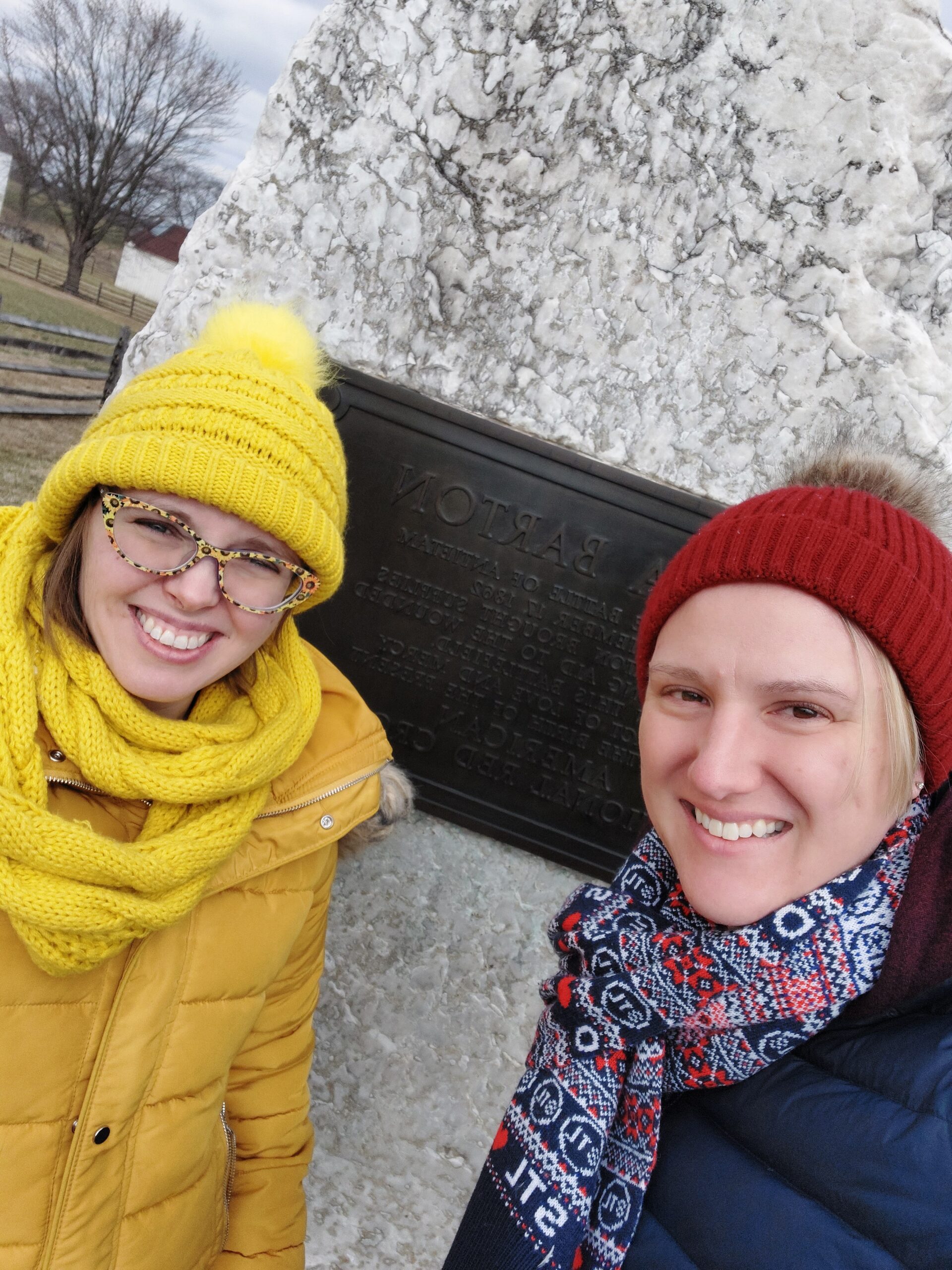
My friend Brittany and I in front of Clara Barton’s marker at Antietam.
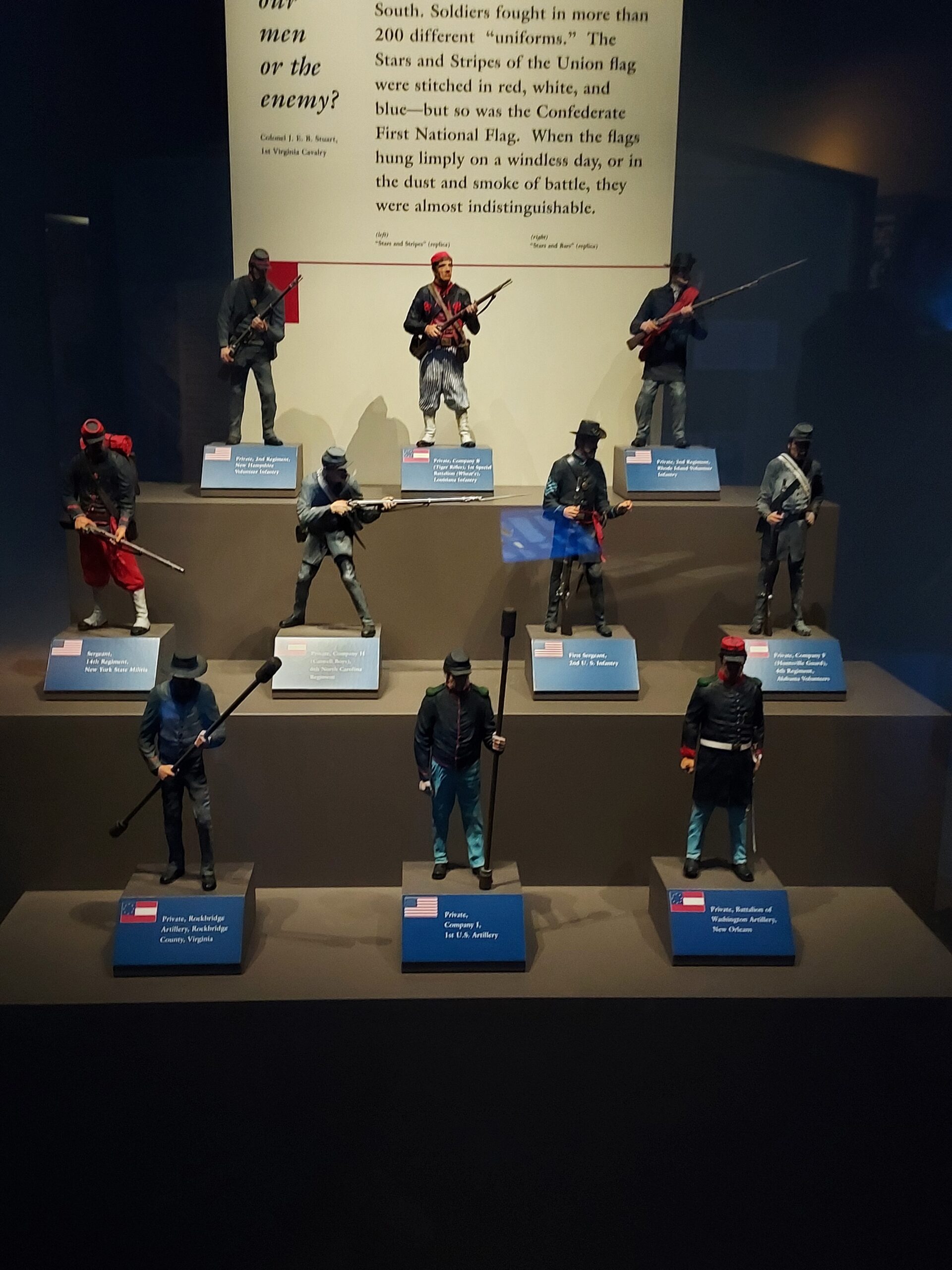
At the beginning of the Civil War, neither side had consistent uniforms. One regiment’s uniform could vary greatly from another and even resemble the enemies’, causing great confusion. This display shows several of the uniforms used early in the war.
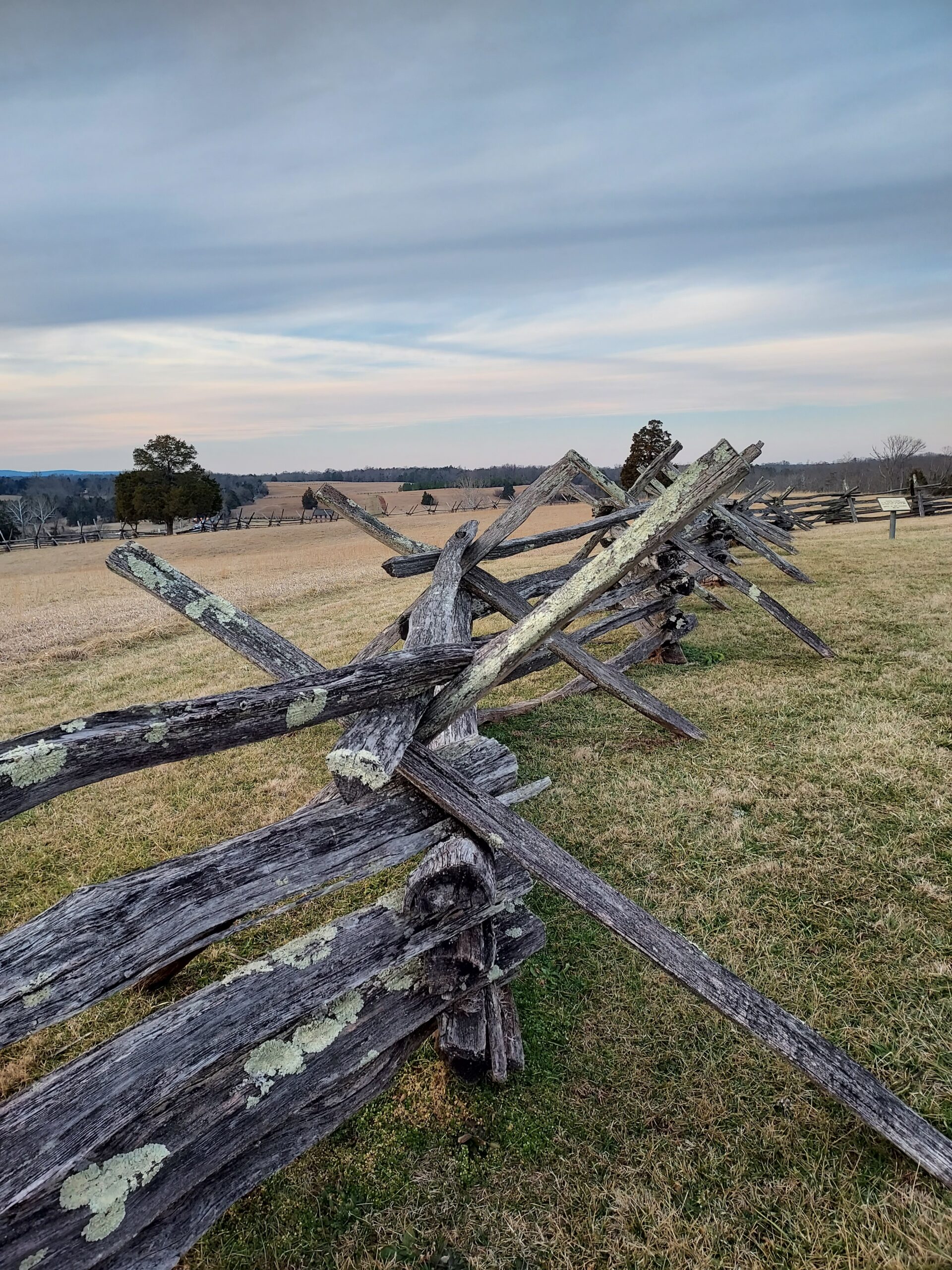
Manassas- Bernie fought at The First Battle of Manassas, also known as Bull Run.
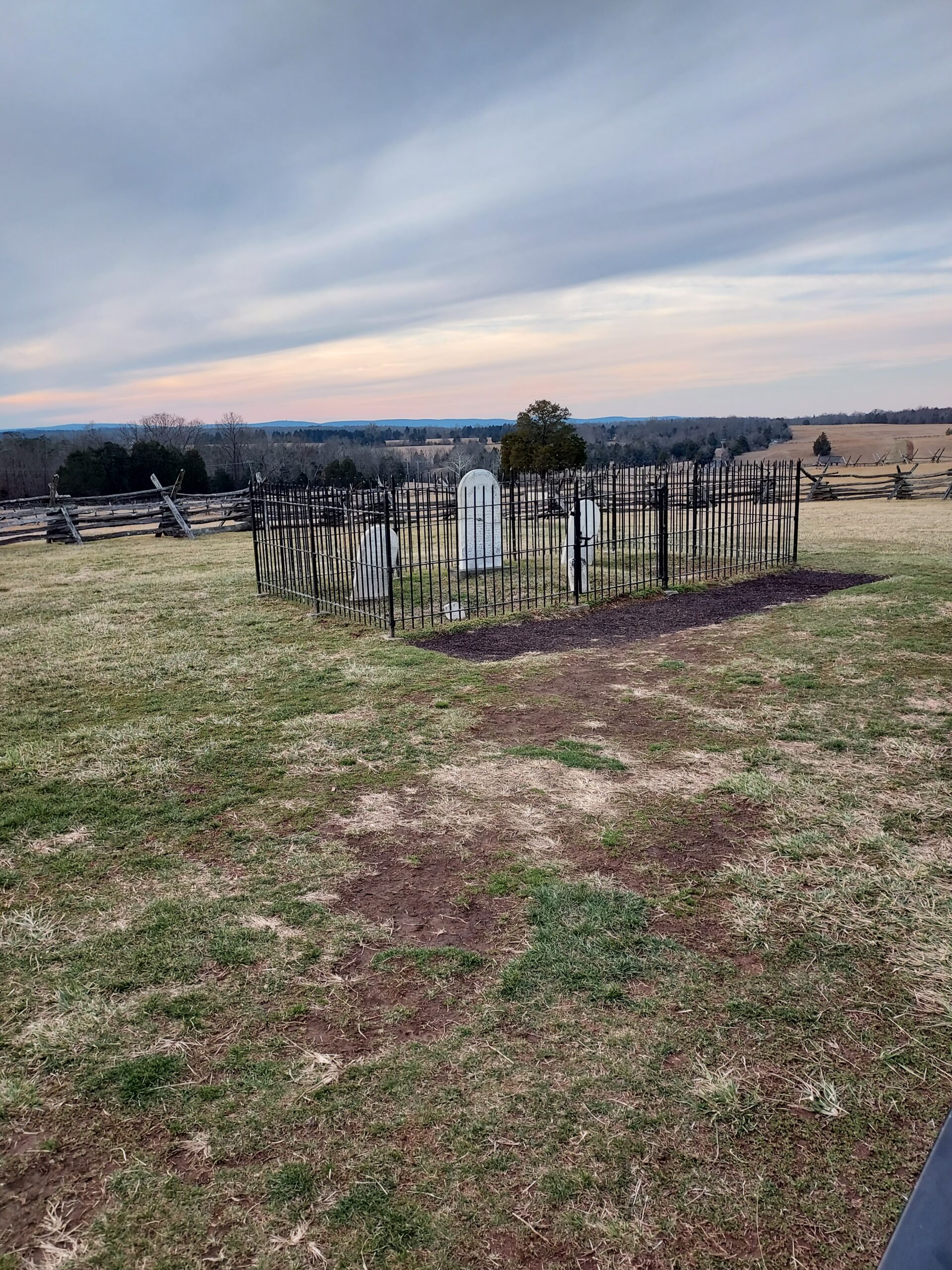
Manassas – Judith Henry’s grave marker in front of the Henry House. She was the first civilian casualty of the Civil War.
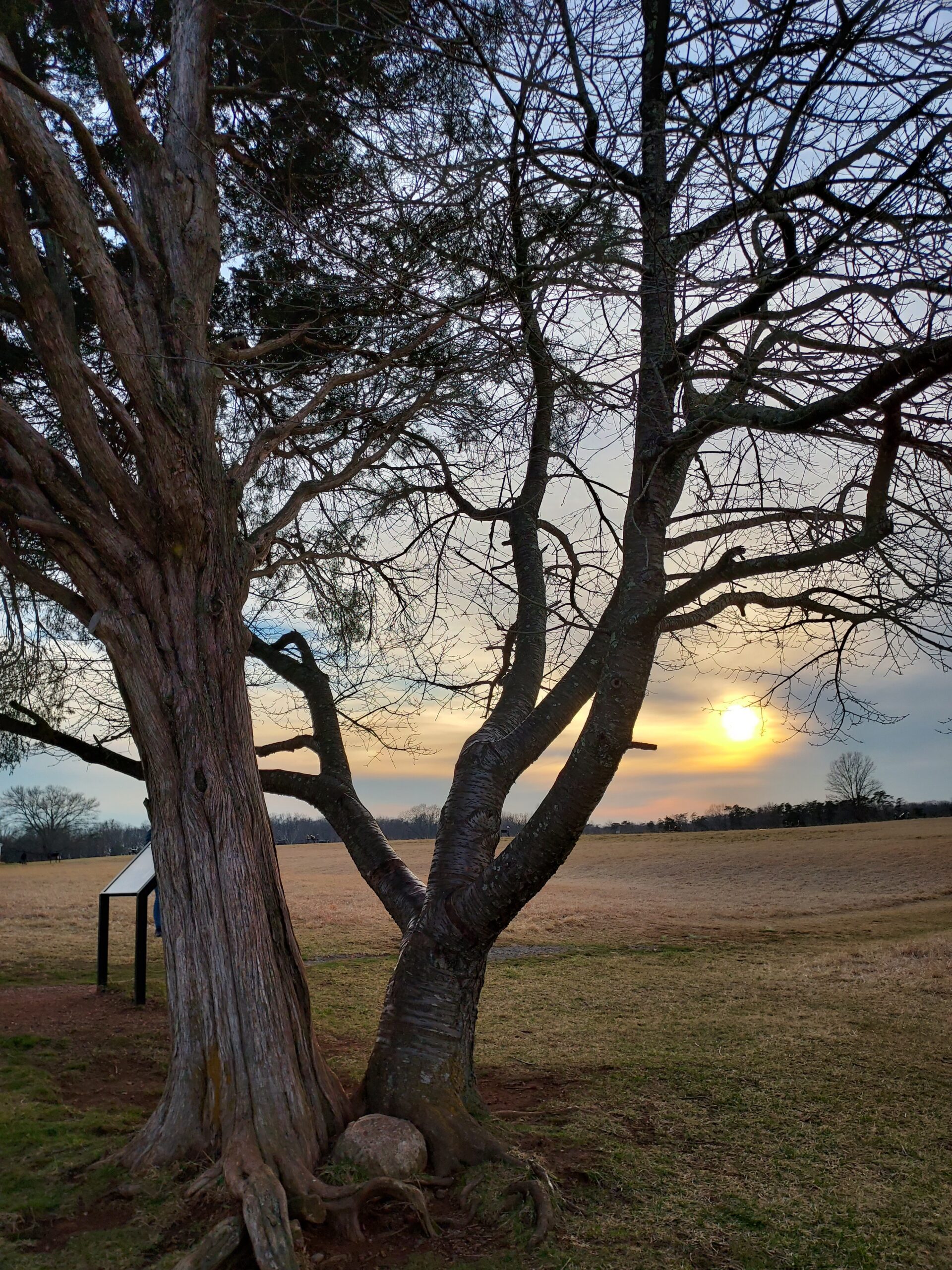
These two separate trees growing together on the Manassas battlefield seem symbolic of North and South.
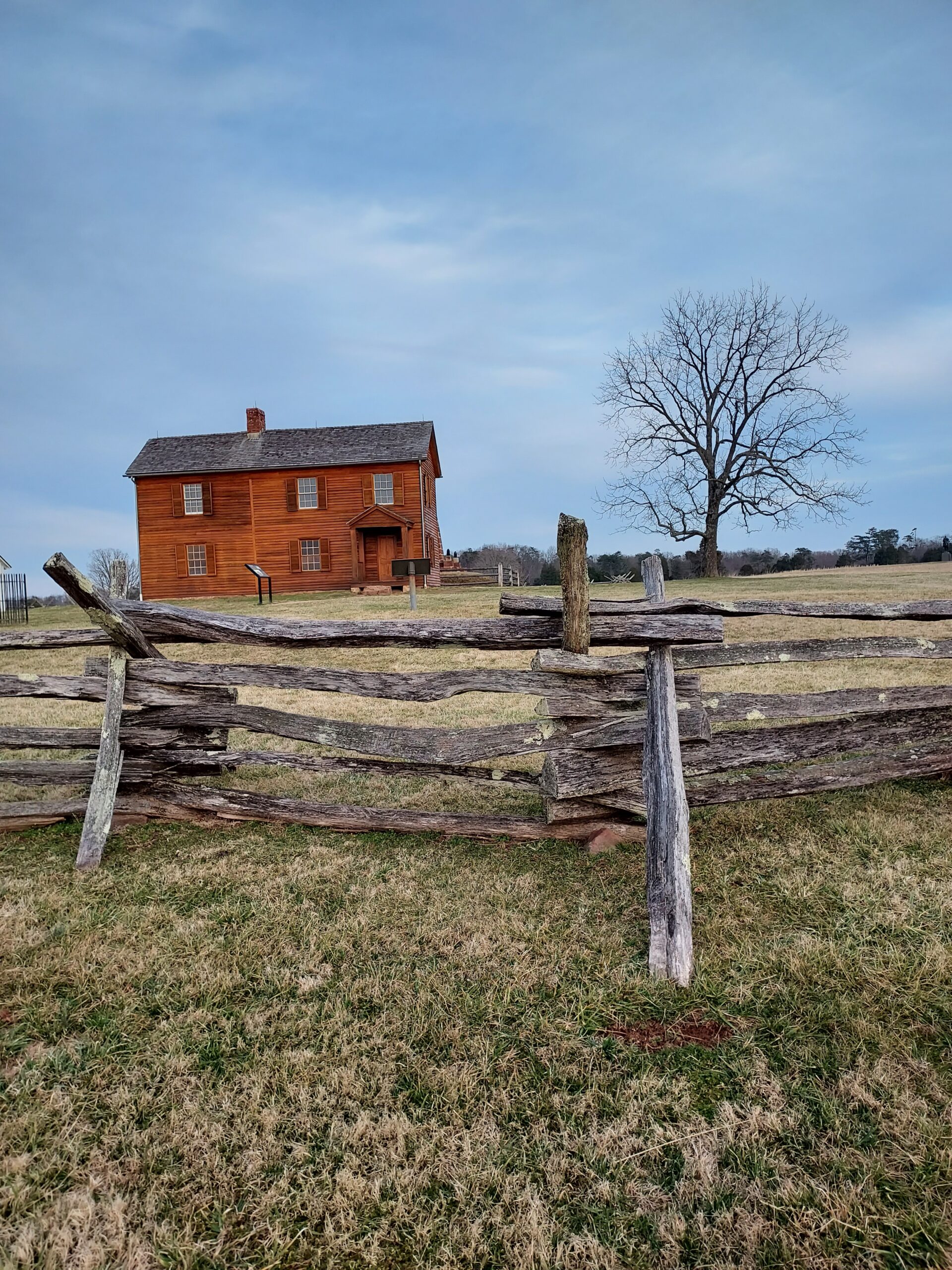
The (rebuilt) Henry House at Manassas. The original Henry House was used by snipers and was in the line of fire in the First Battle of Manassas. The homeowner Judith Carter Henry, about 85 years old, refused to leave the house and was killed during the battle. She was the first civilian to be killed by Civil War combat.
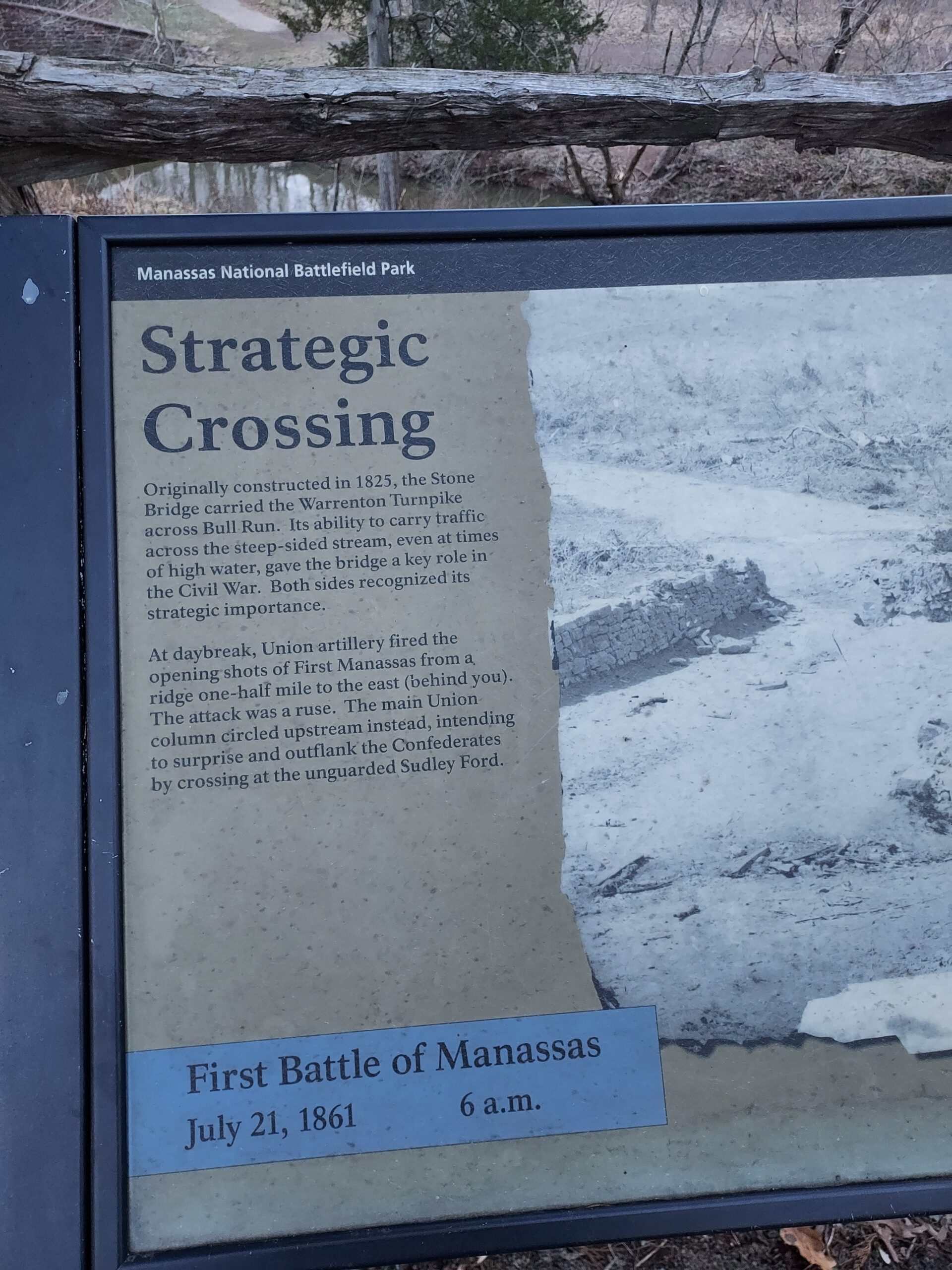
The marker at the stone bridge at Manassas.
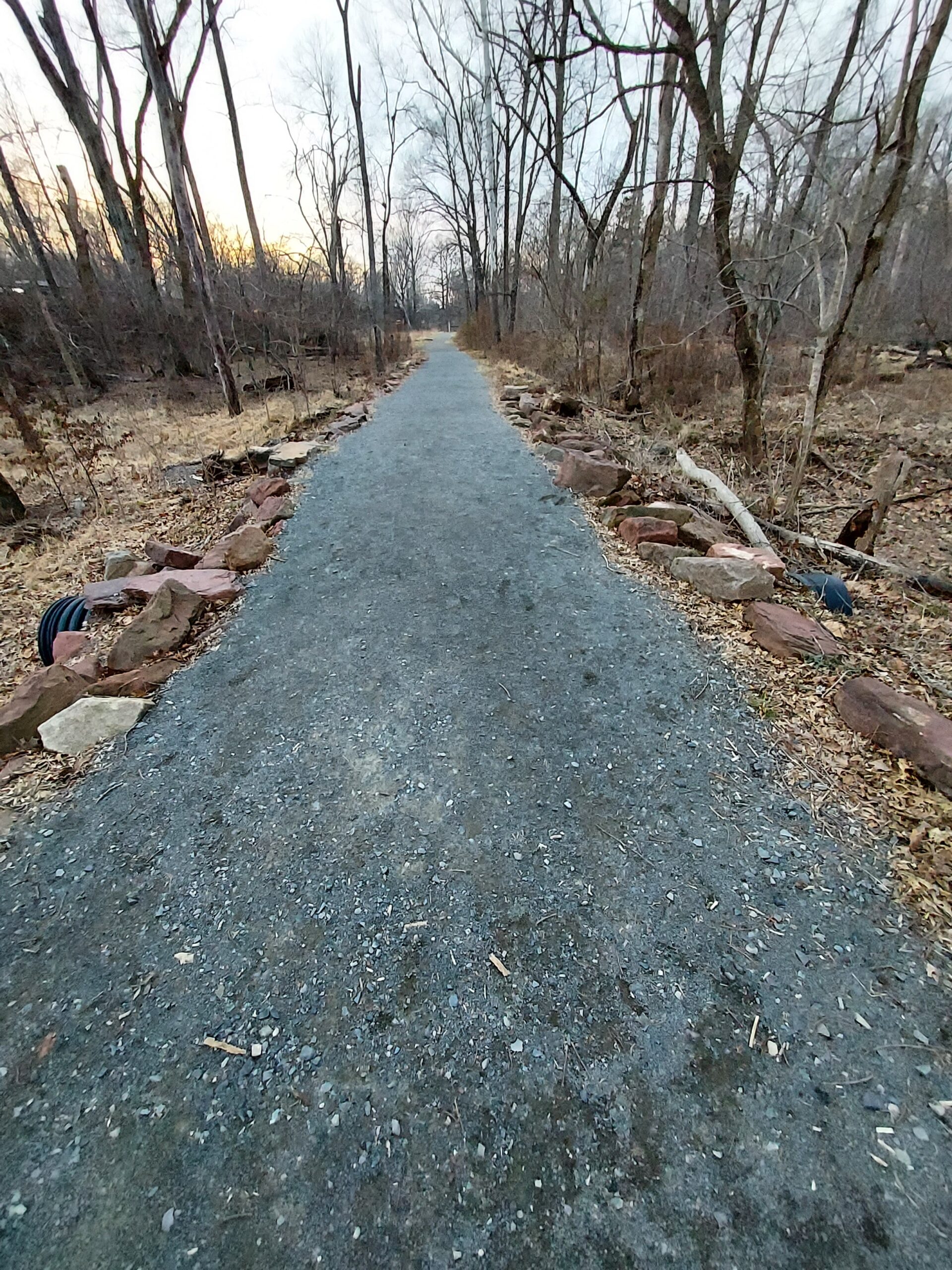
On the road to Manassas.
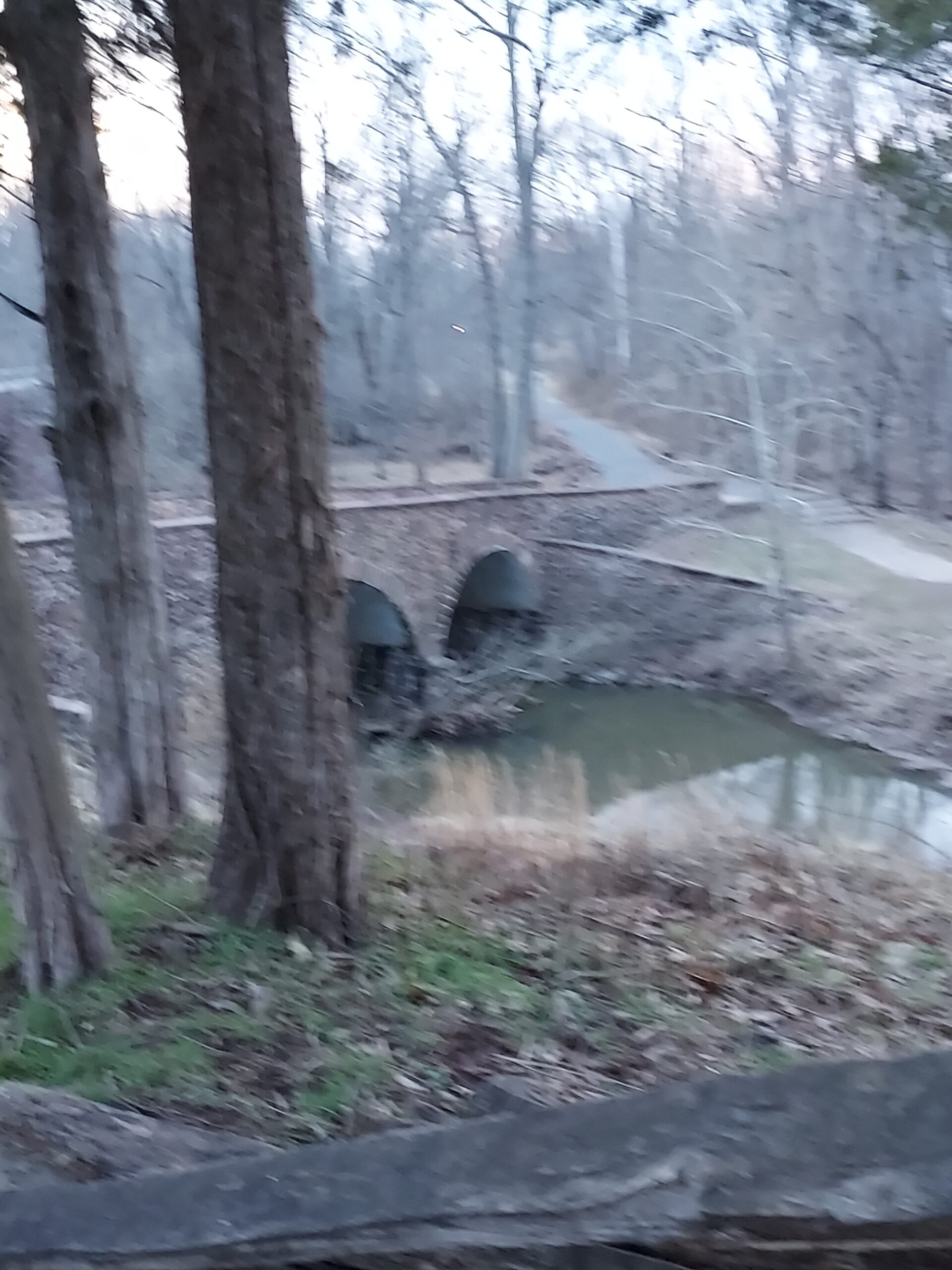
The stone bridge at Mansassas.
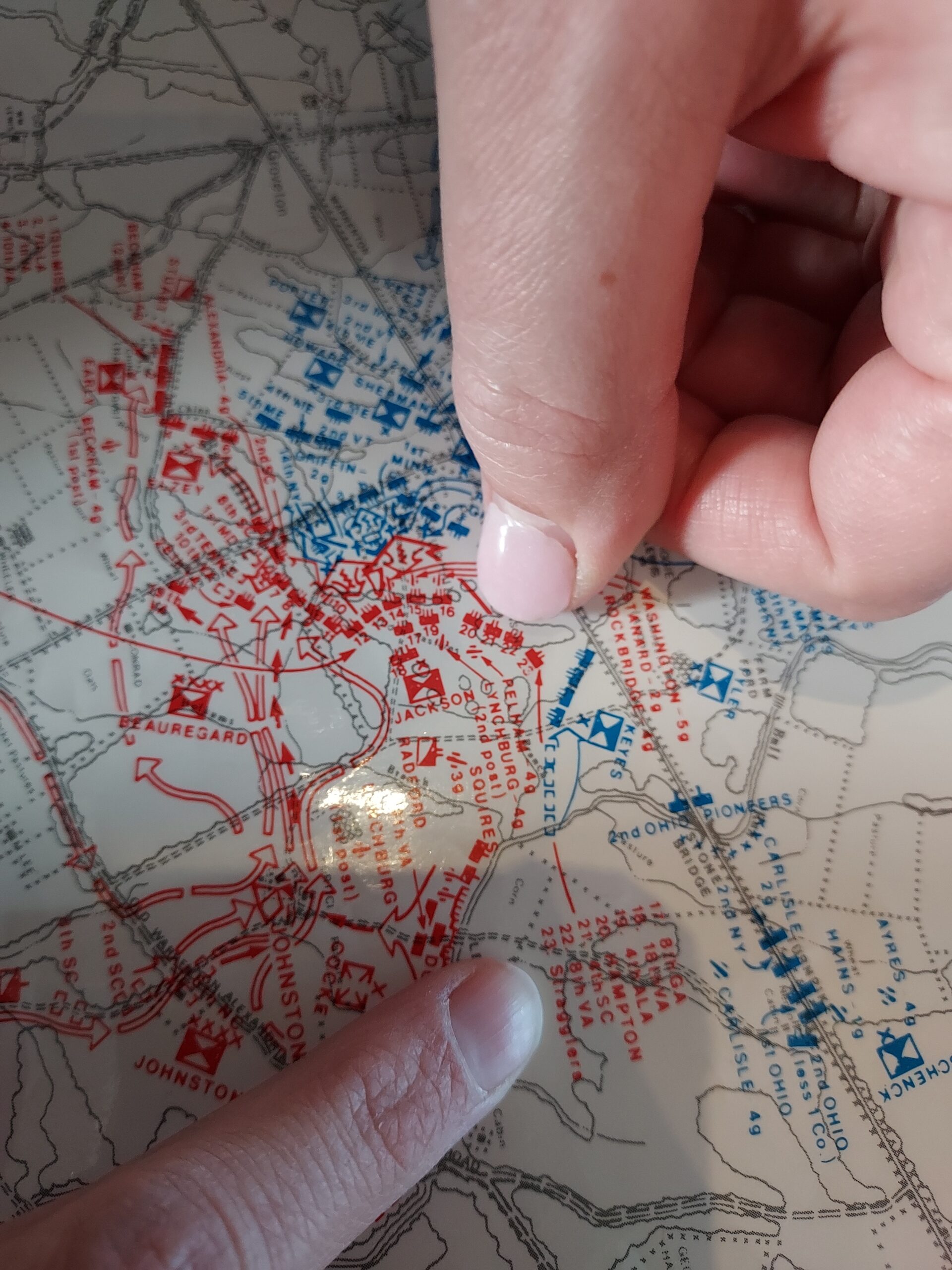
The battle plans of First Manassas. My friend and I were trying to figure out how Bernie could get onto Henry Hill.
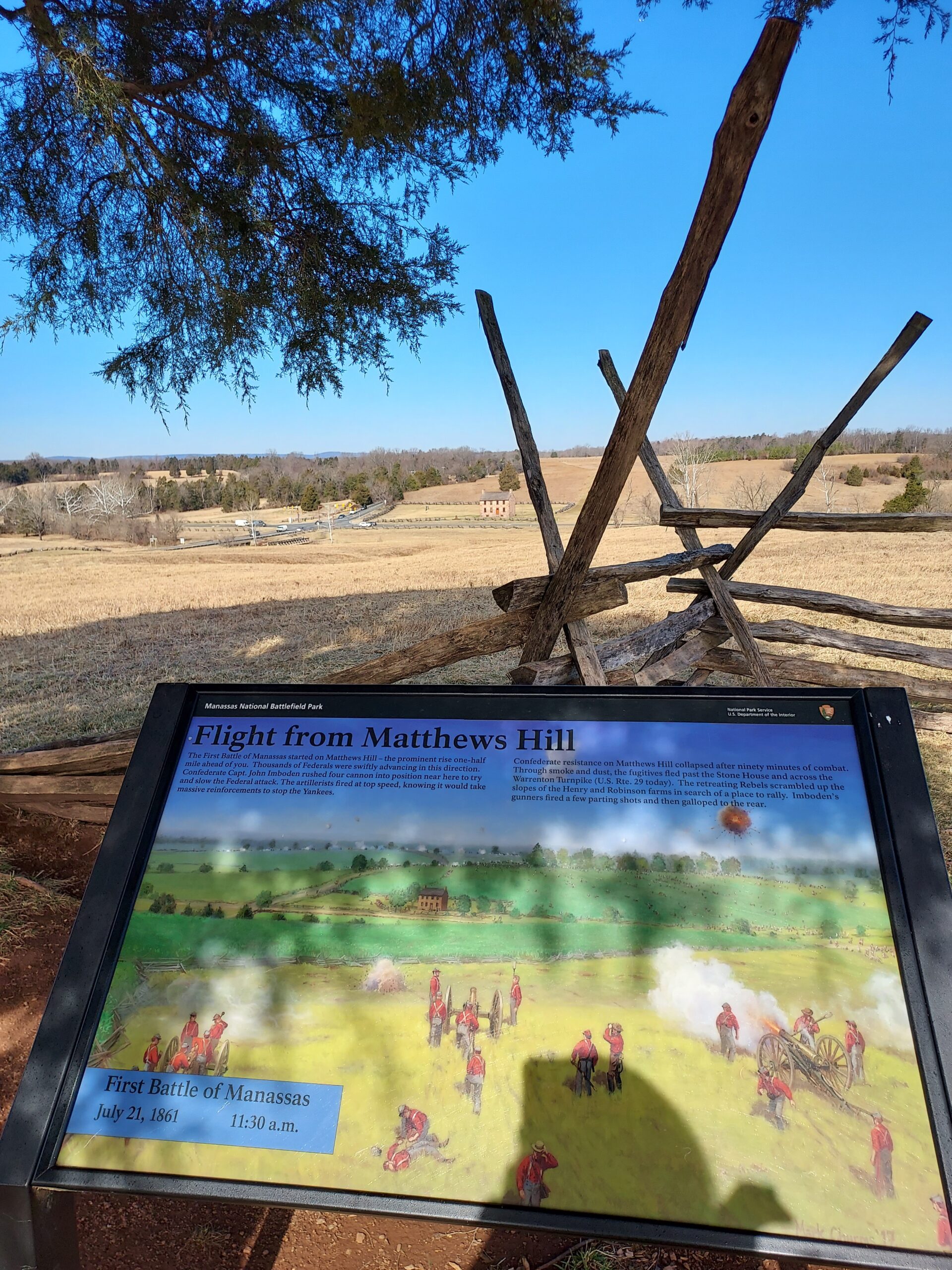
The marker for Matthew’s Hill at Manassas. Bernie was here.
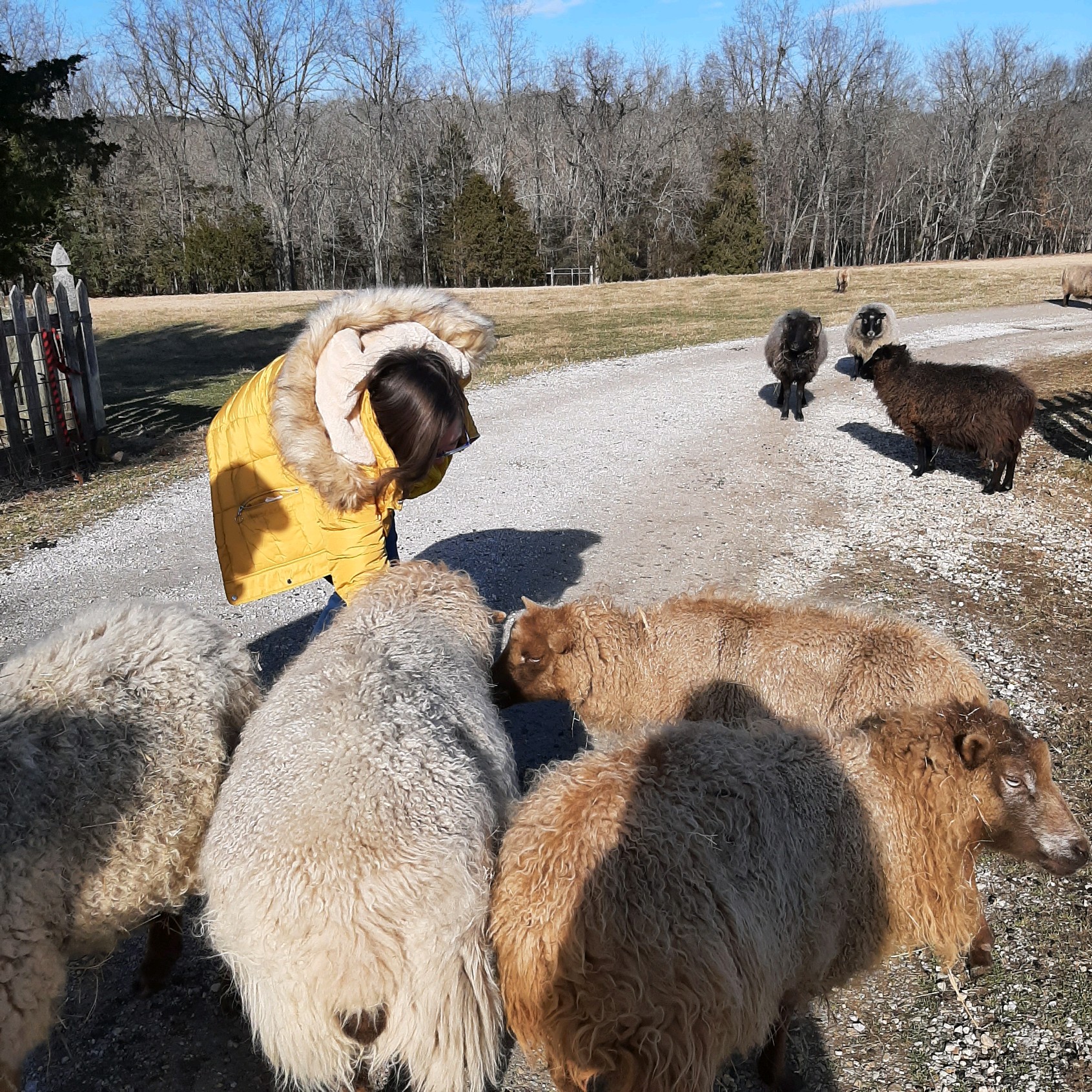
I had the privilege of touring Wild Flour Farm in Dittmer, Missouri, a farm that has Shetland sheep. Many thanks to Don and Peggy McCallie for their hospitality and sharing a wealth of information.
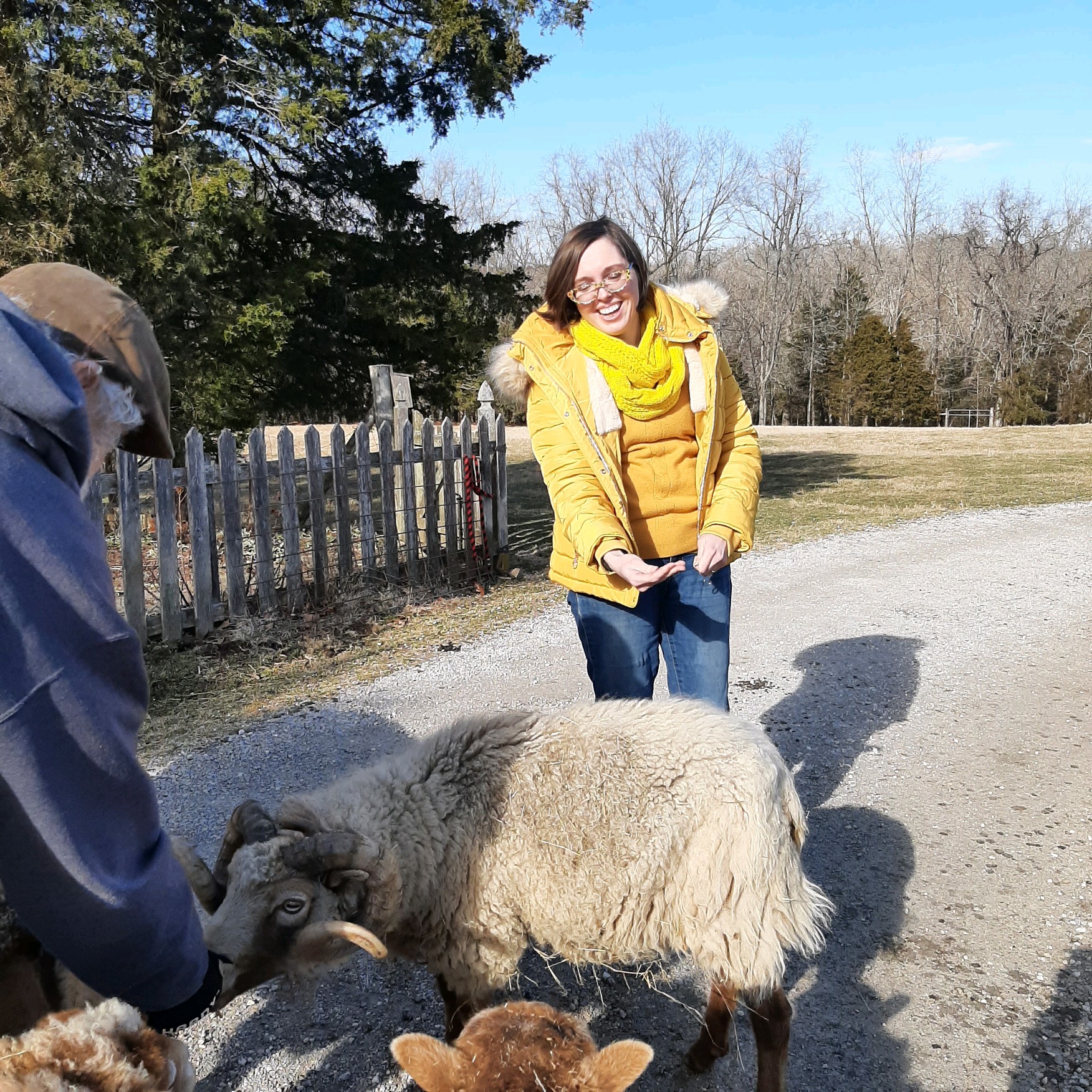
I got to feed the sheep treats, but had to be careful to only feed a few bites at a time. As a side note, I’m not sure the sheep knew what to make of my bright yellow presence.
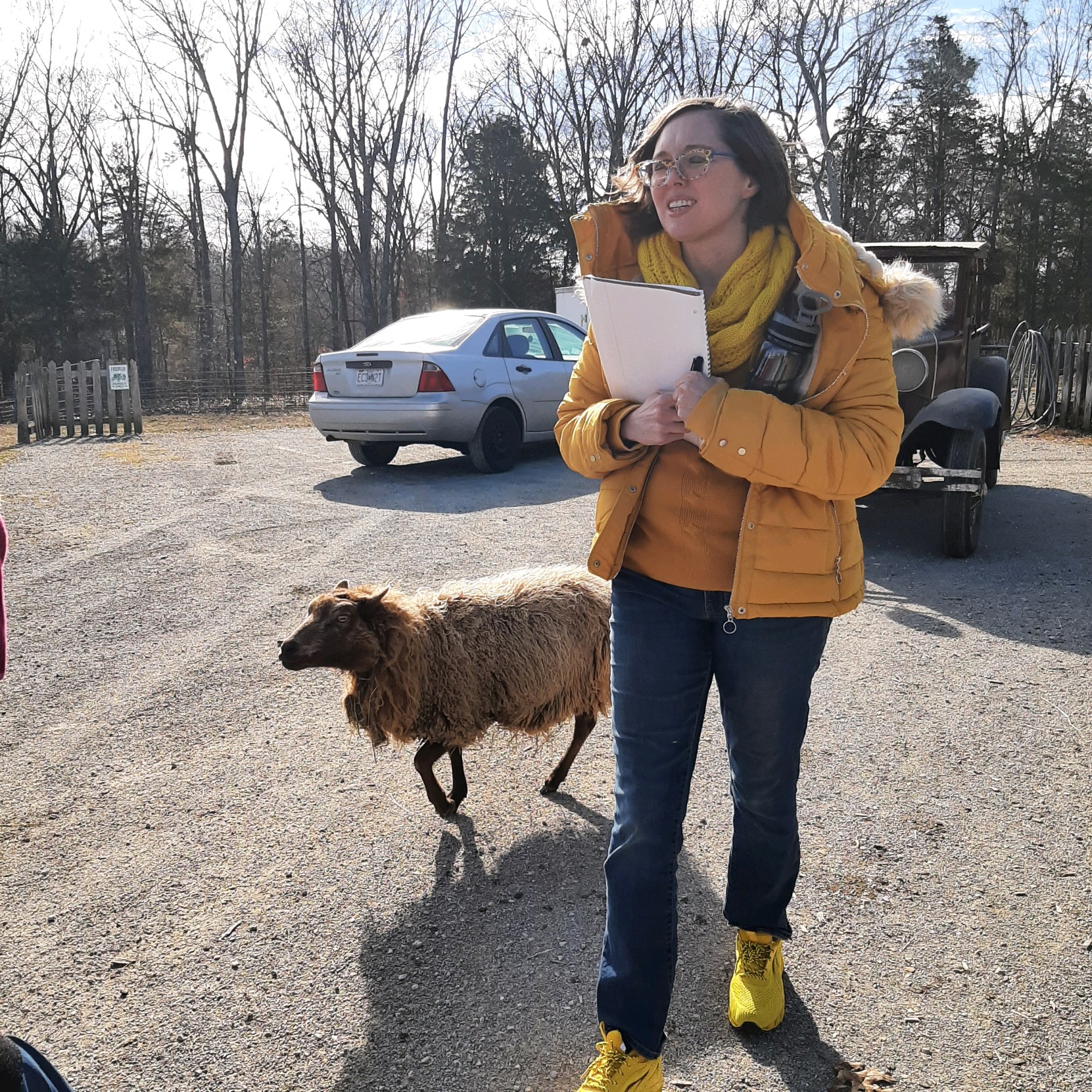
Me with my research notebook. I took copious notes.
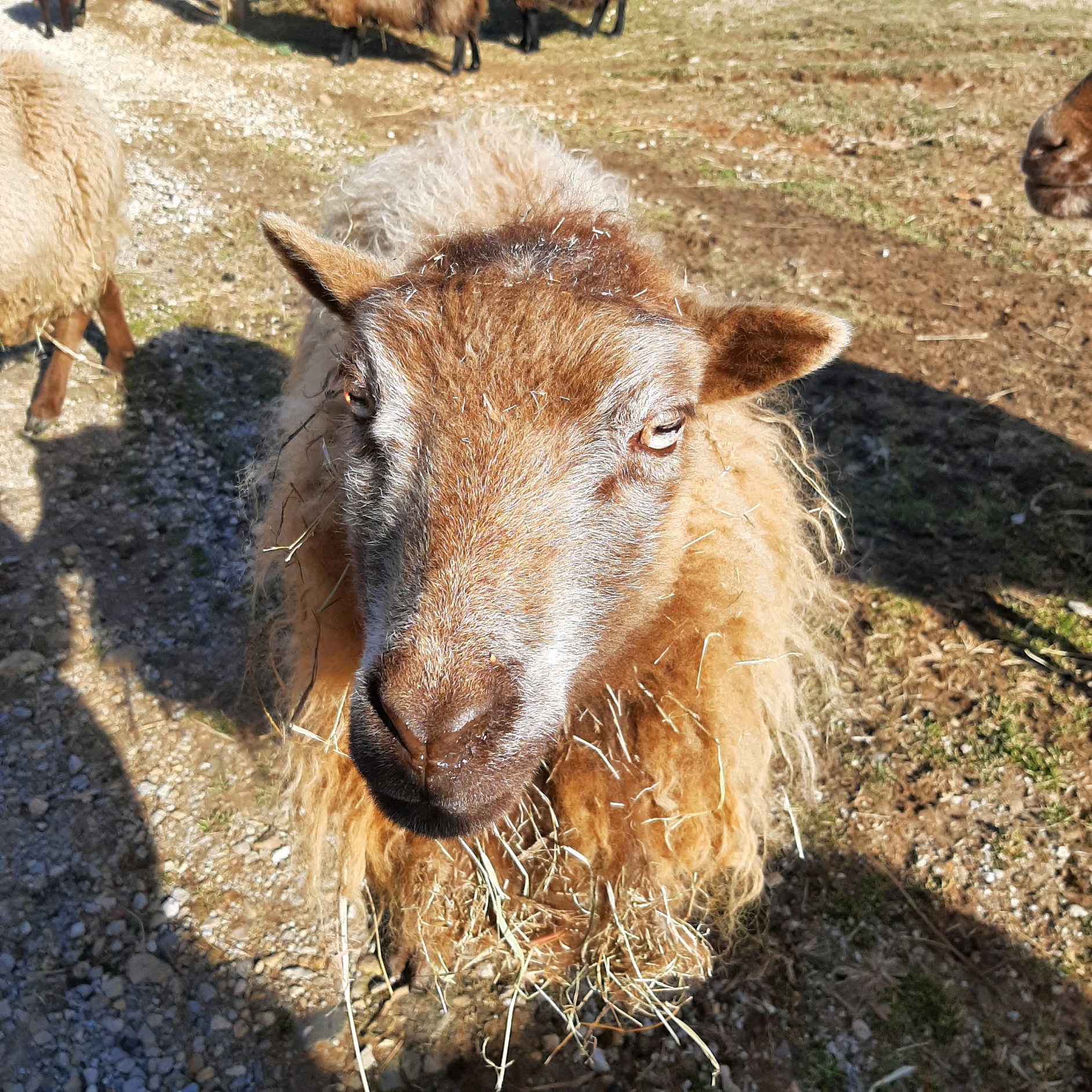
Each sheep has a name and his or her own personality!
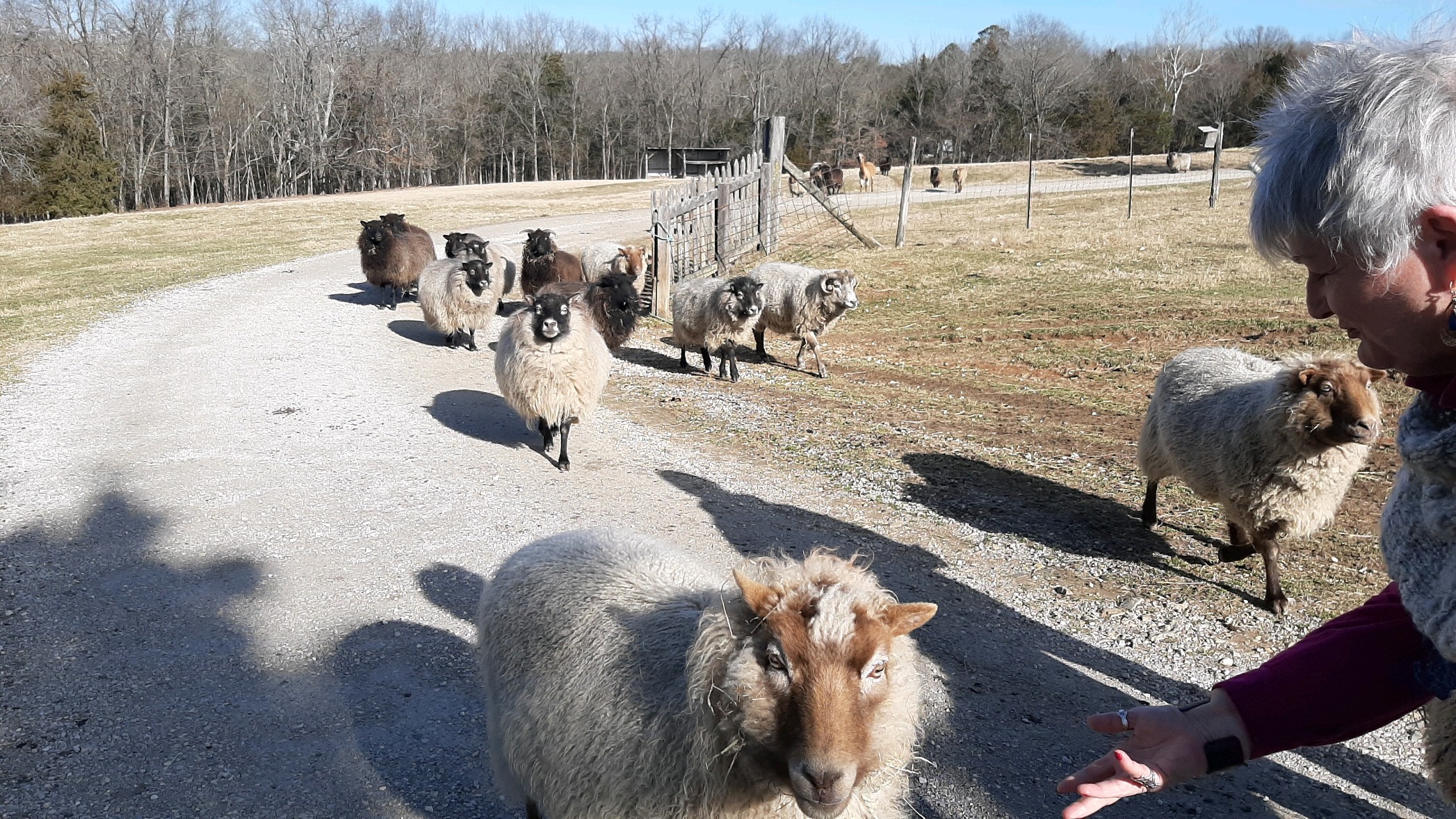
They all came running when Peggy called them.
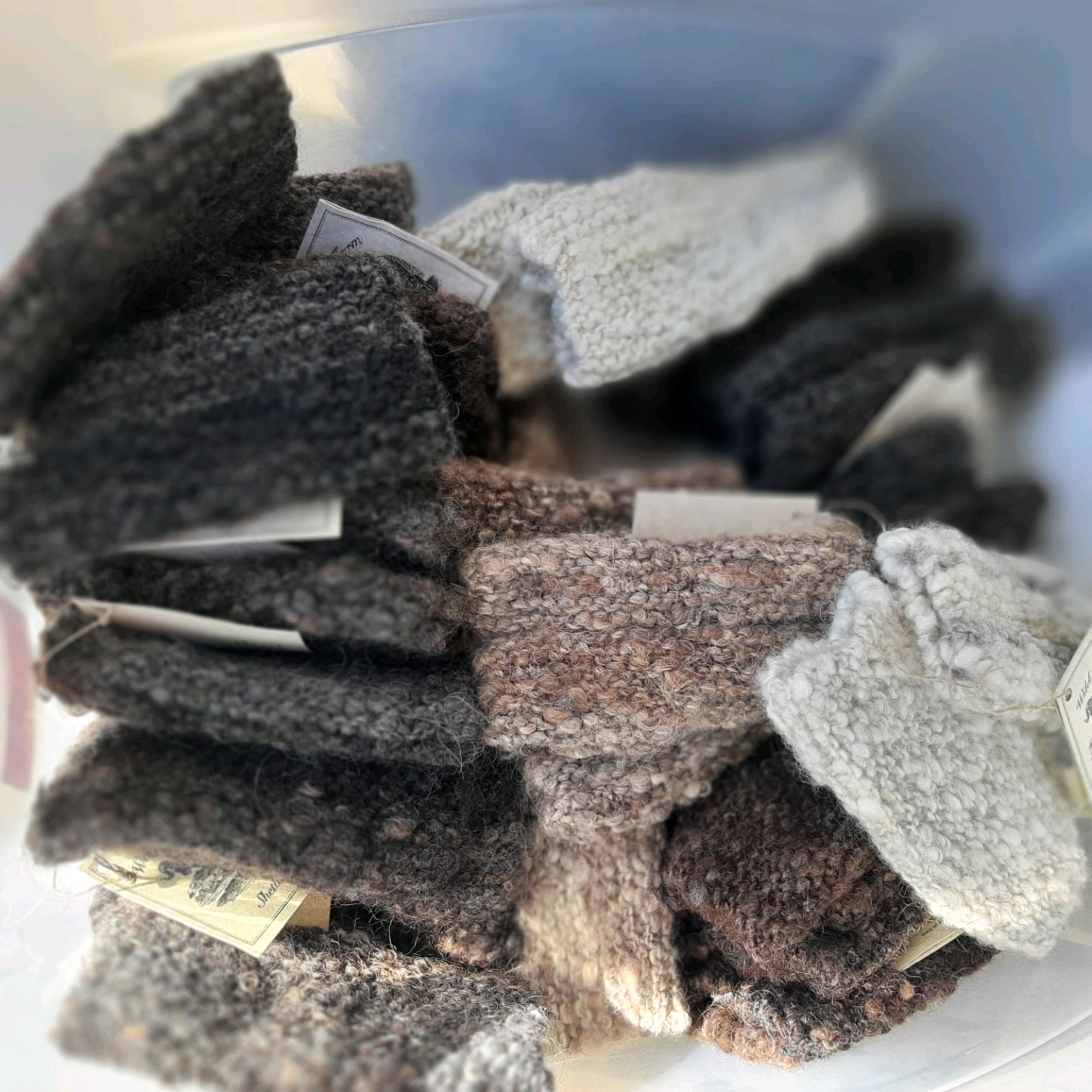
Shetlands have a variety of colors to their wool. Simply beautiful!
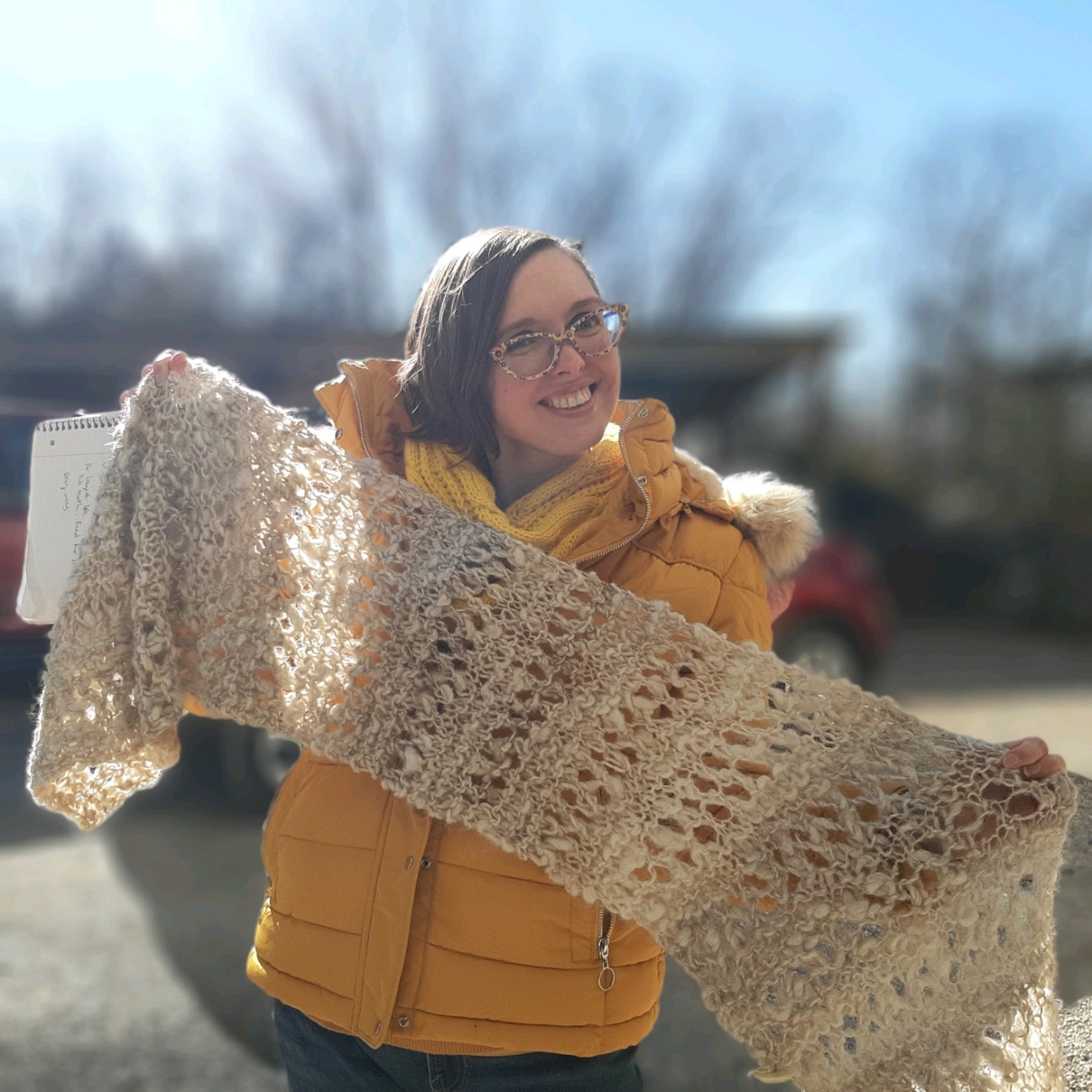
A scarf Peggy made.
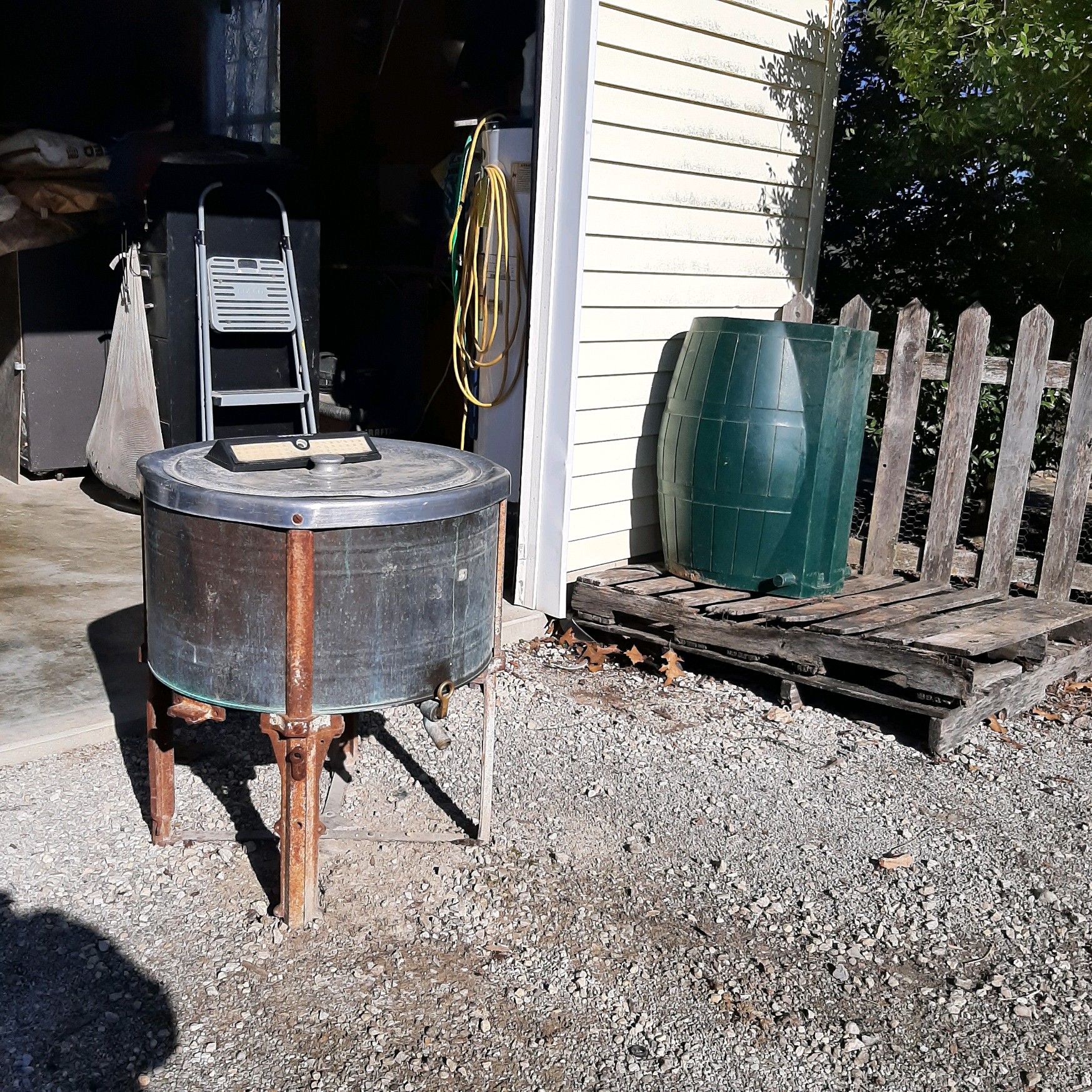
They wash the wool using this old-fashioned machine.
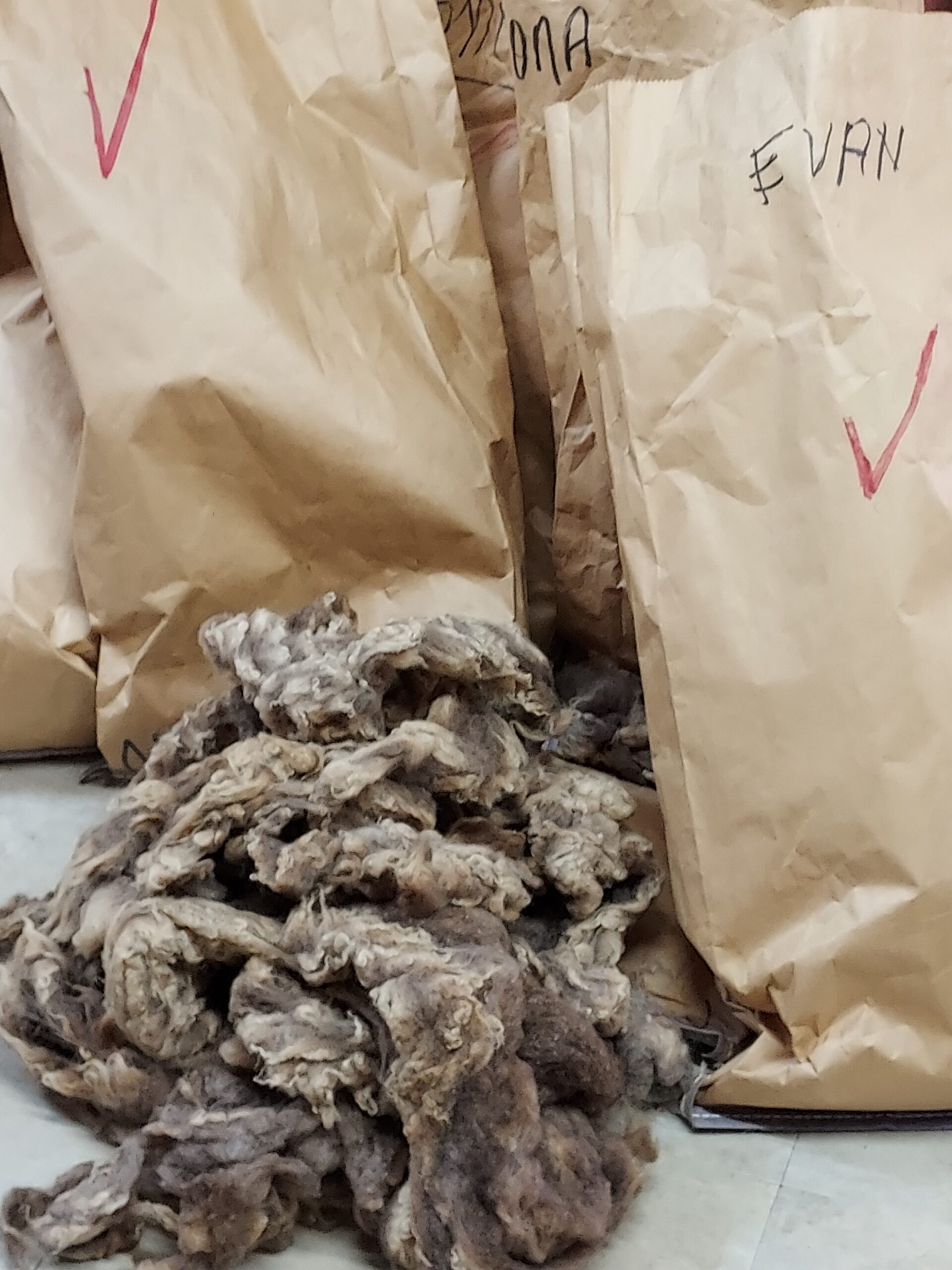
Unspun wool is kept in bags with the sheep’s name on it.
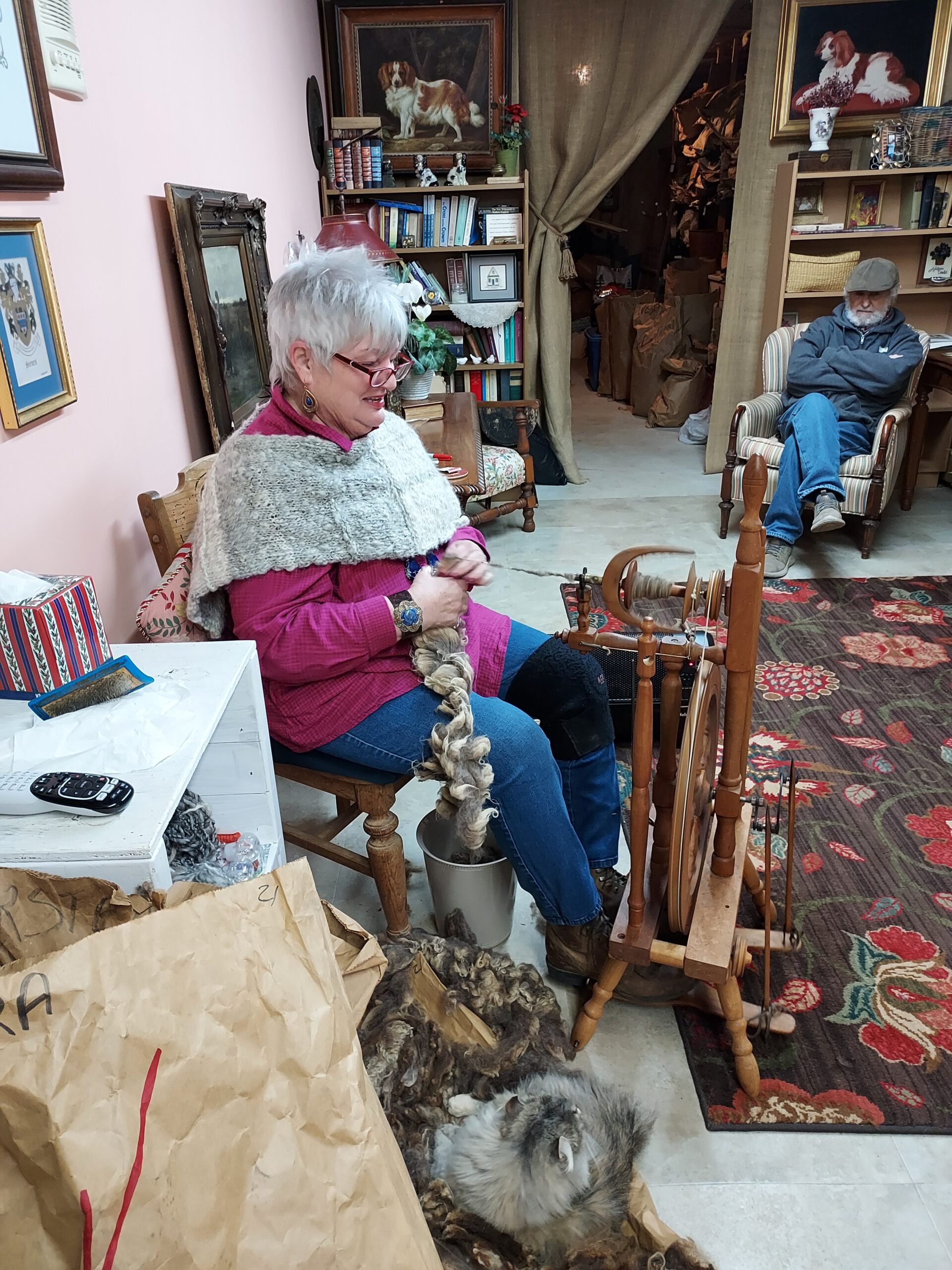
Peggy spinning.
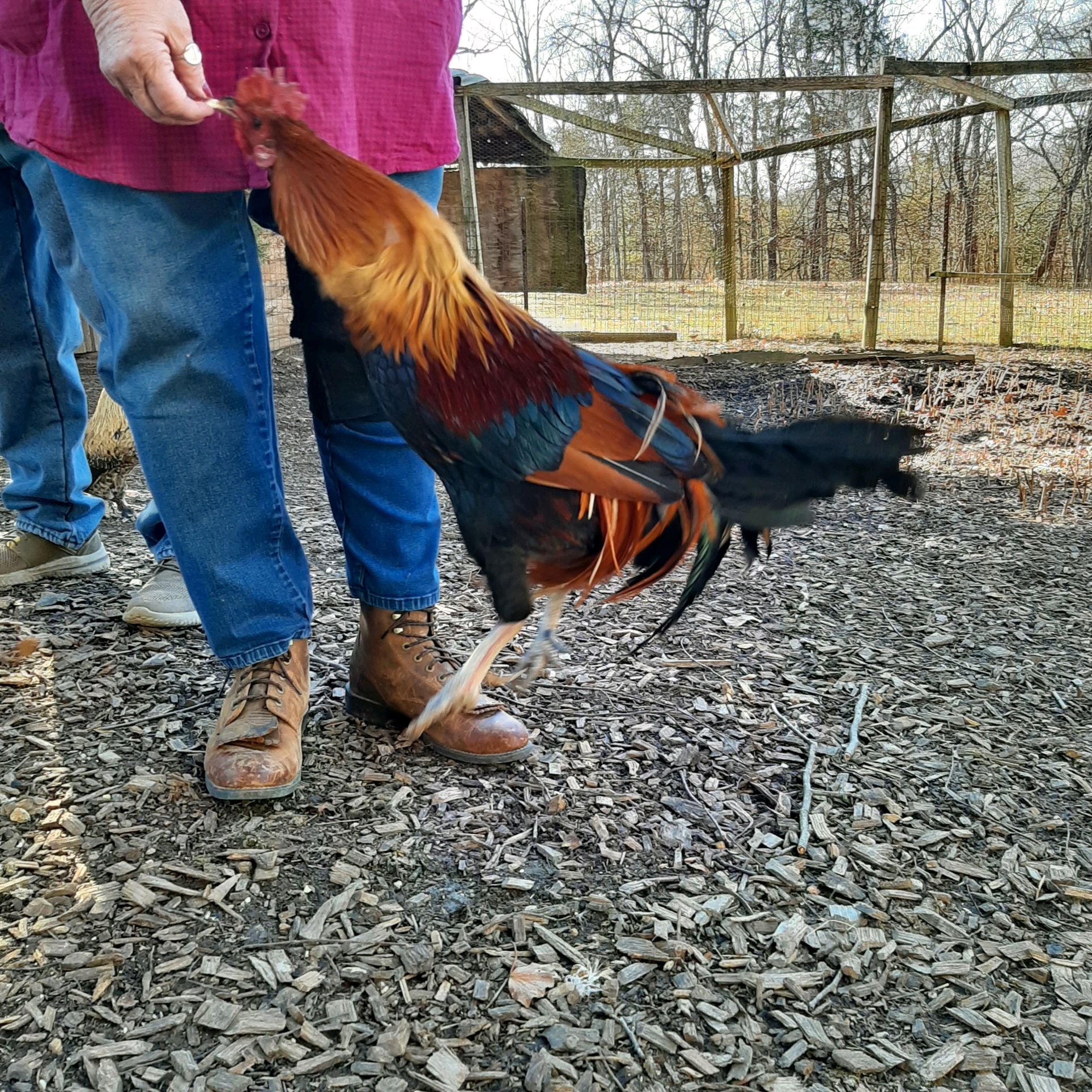
They have chickens and a rooster at the farm as well.
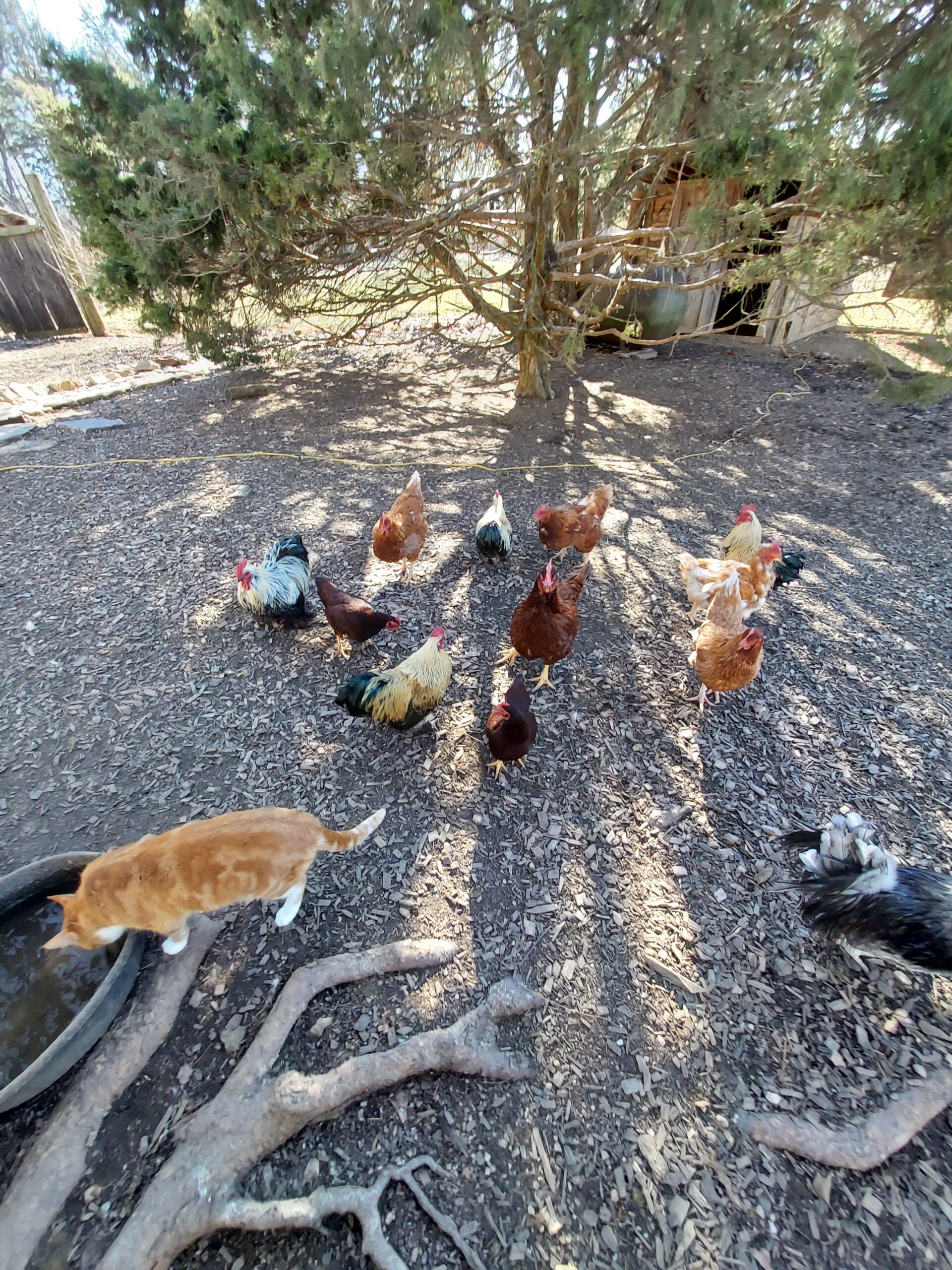
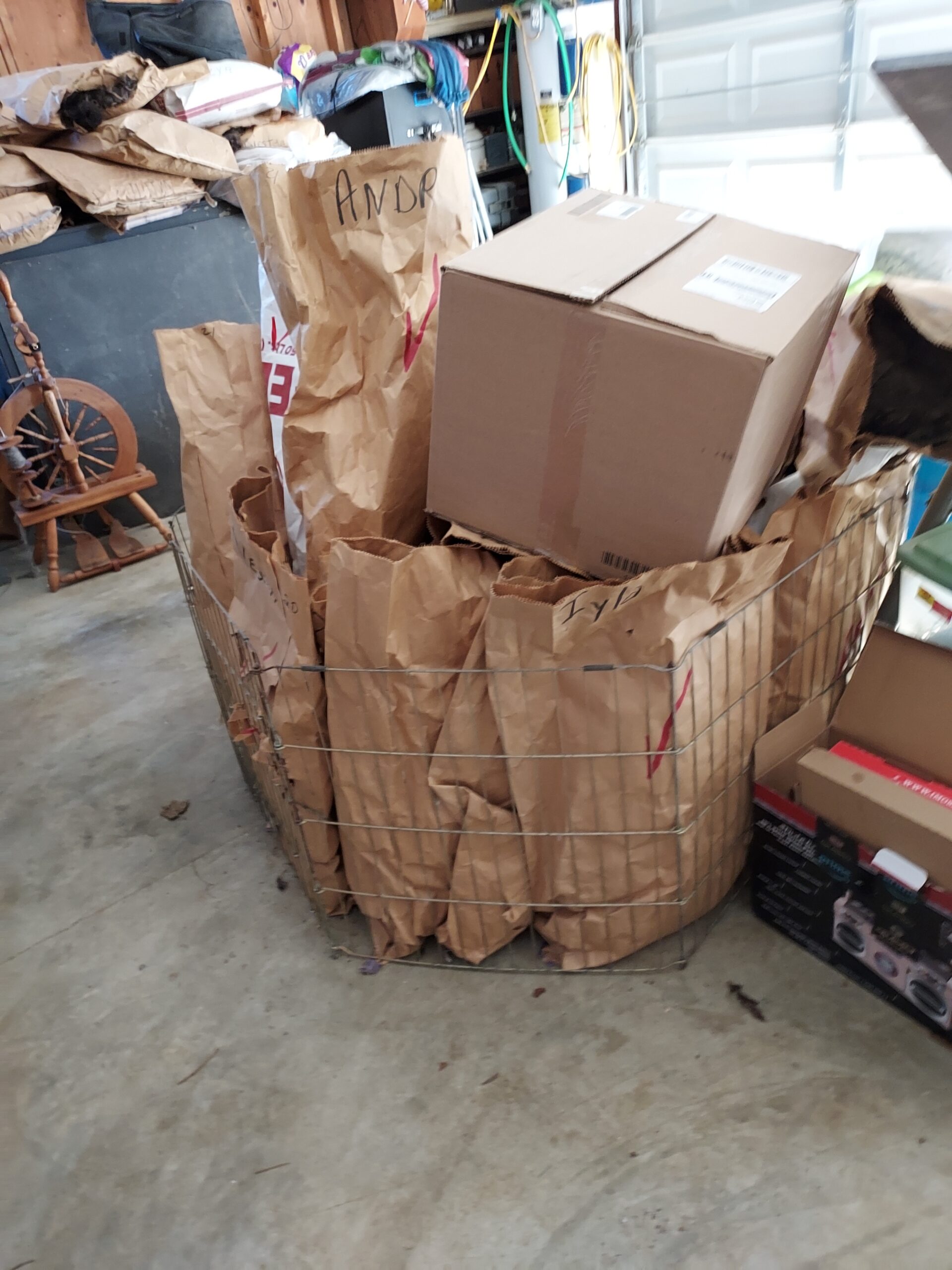
In A Battle Worth Fighting Sahara feeds the chicken saltines, just like Peggy feeds hers. Sahara also spins wool named after the sheep it was shorn from, just as Peggy does. Peggy doesn’t just spin wool, she spins “Evan”. Those sheep are her babies and they have a close relationship. The most important thing I learned from this research field trip? Shetlands are special.
